The Thalamus
- Embryological origins:
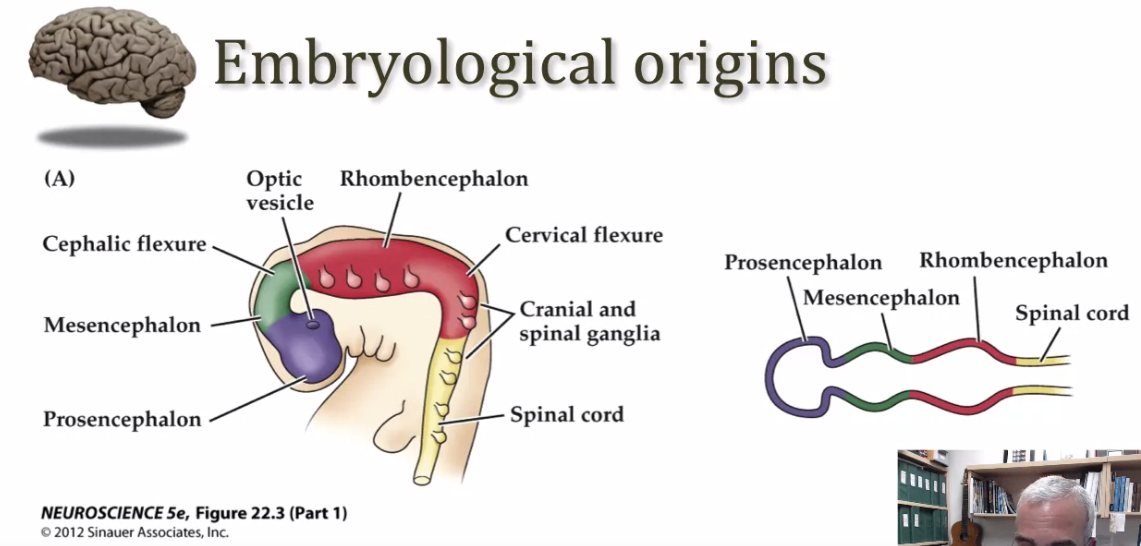
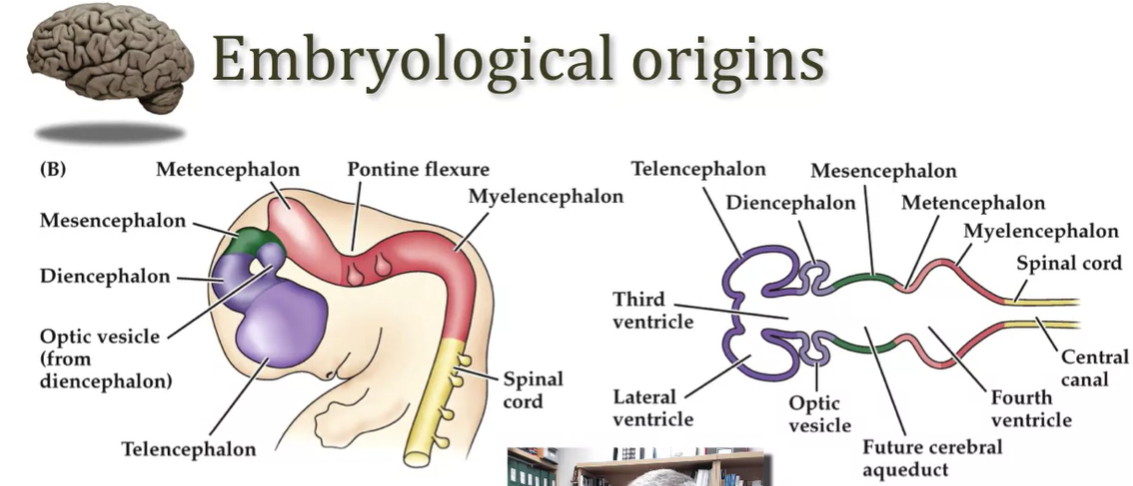
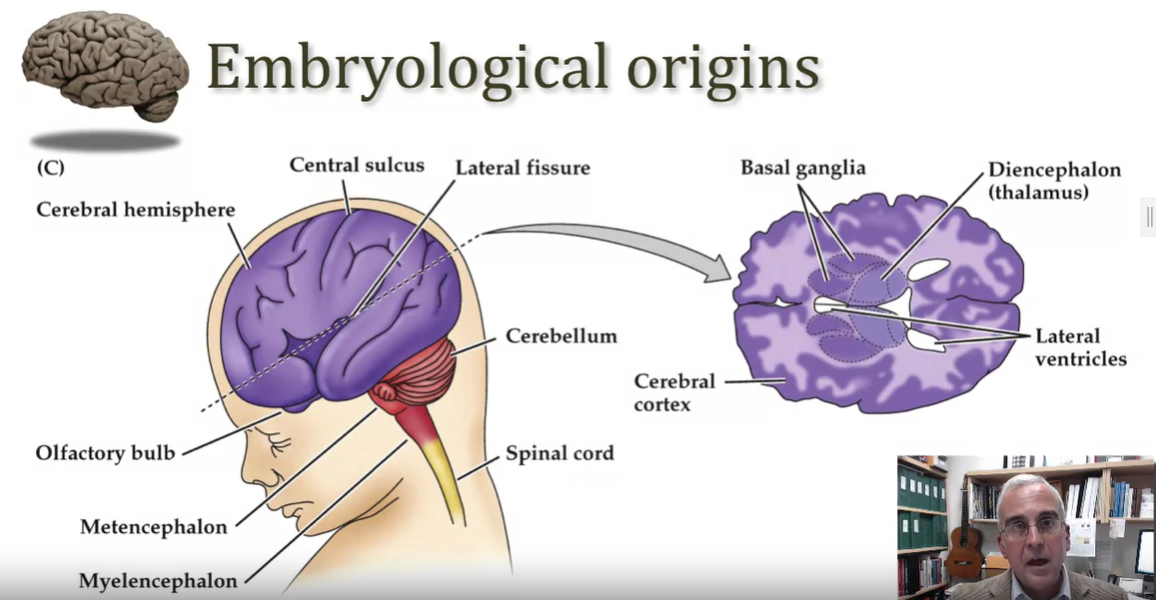
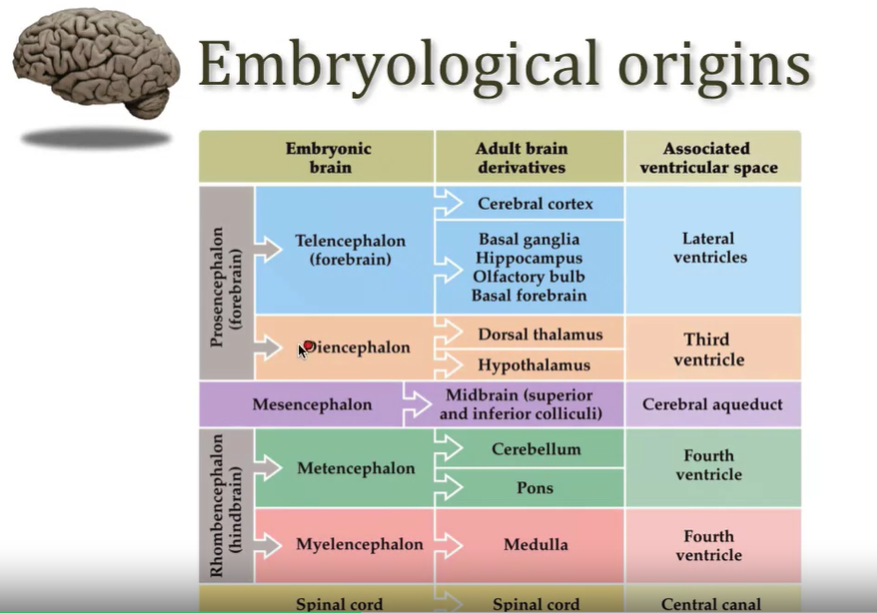
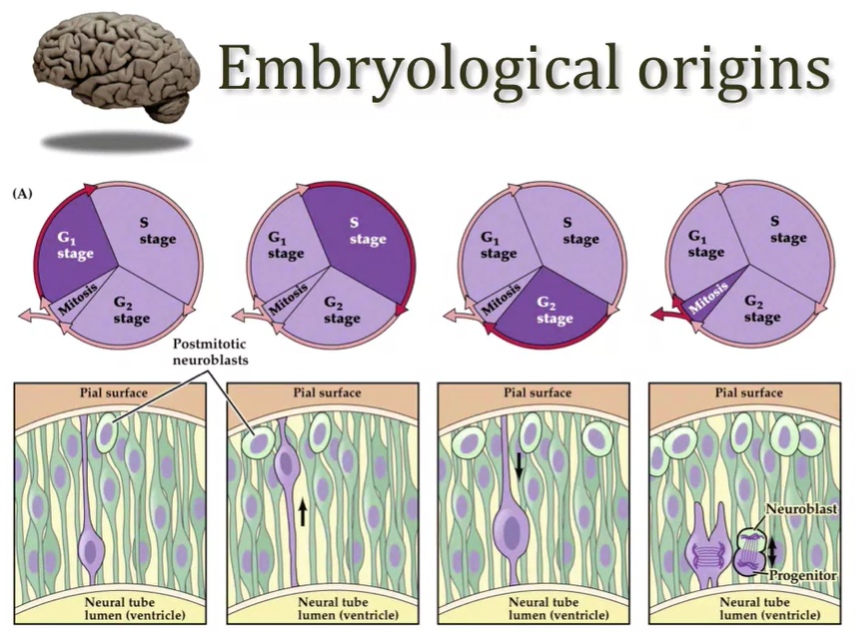
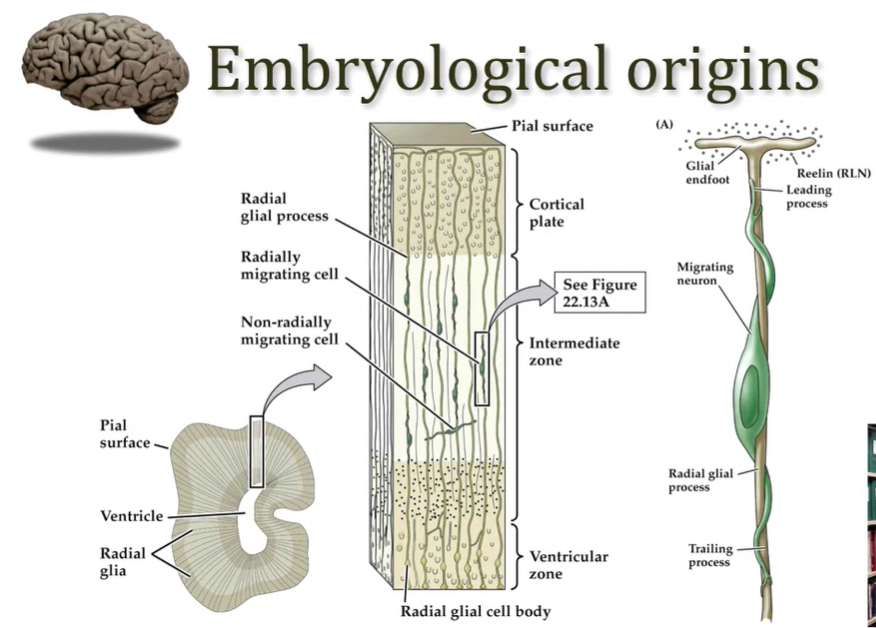
- Thalamus:
- The location:接近前脑的中部
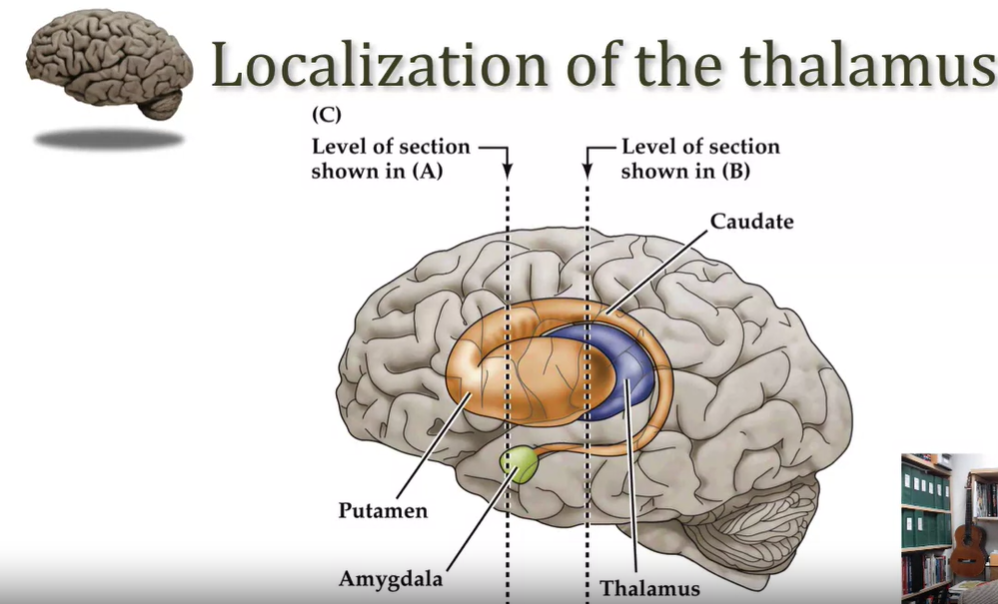
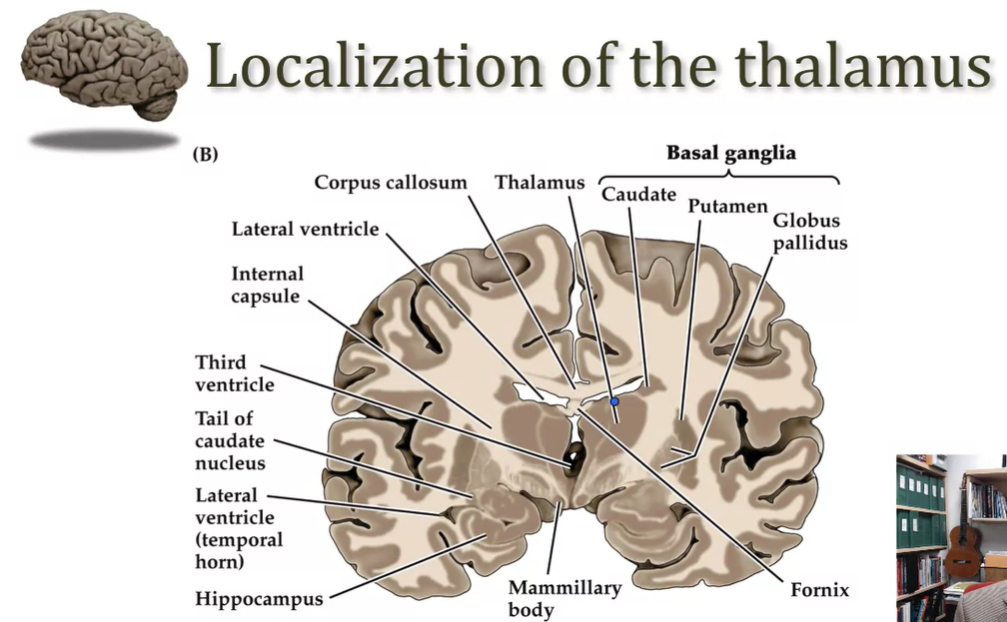
- Organization:
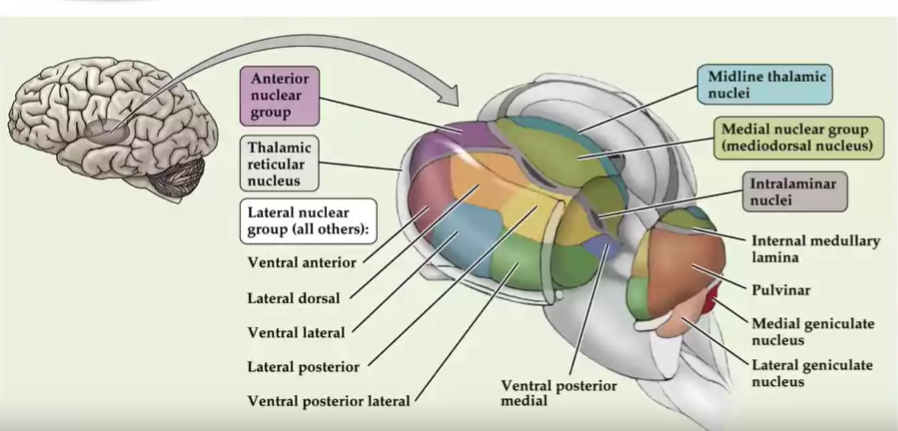
- Function: relay, distribute, modulate
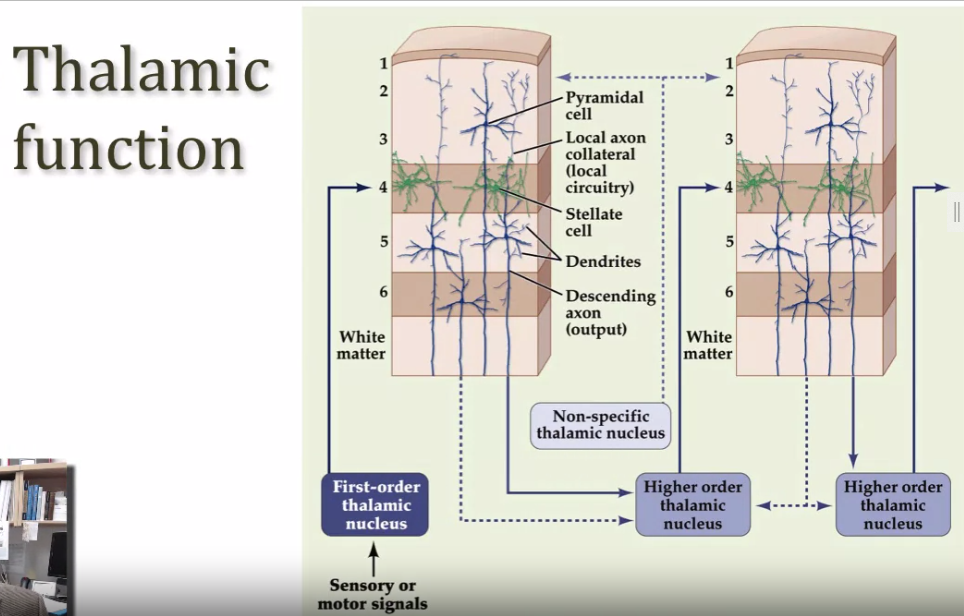
- The location:接近前脑的中部
Overview and origins of cortical circuits
- layer4: Thalamic recipient zone.
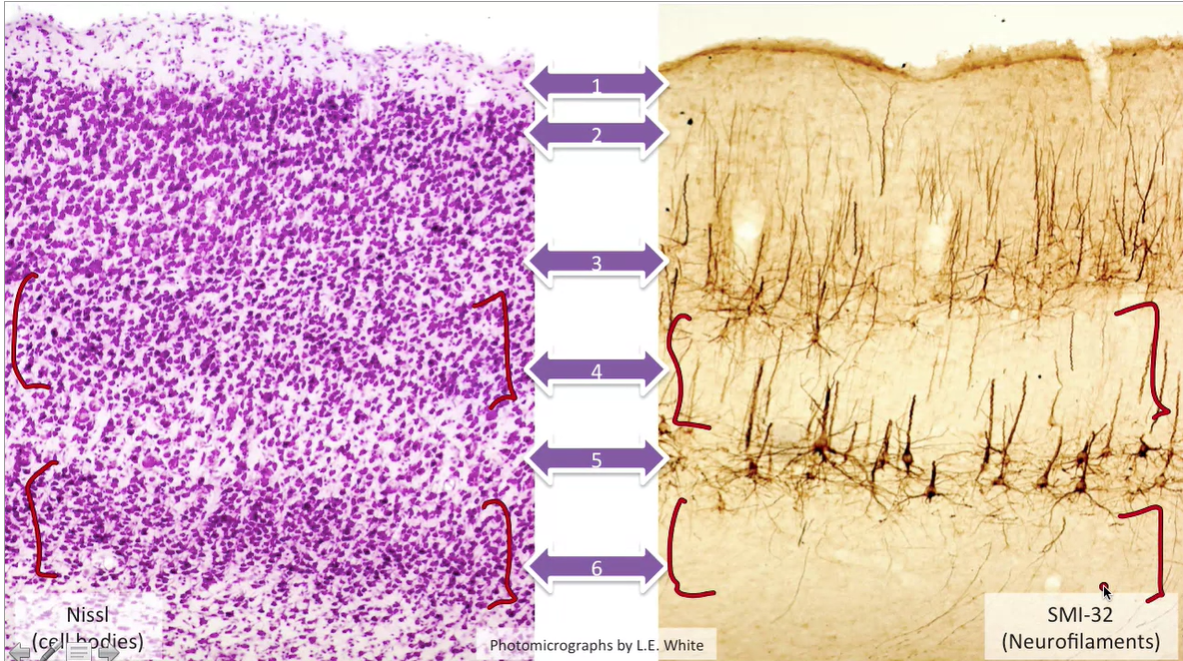
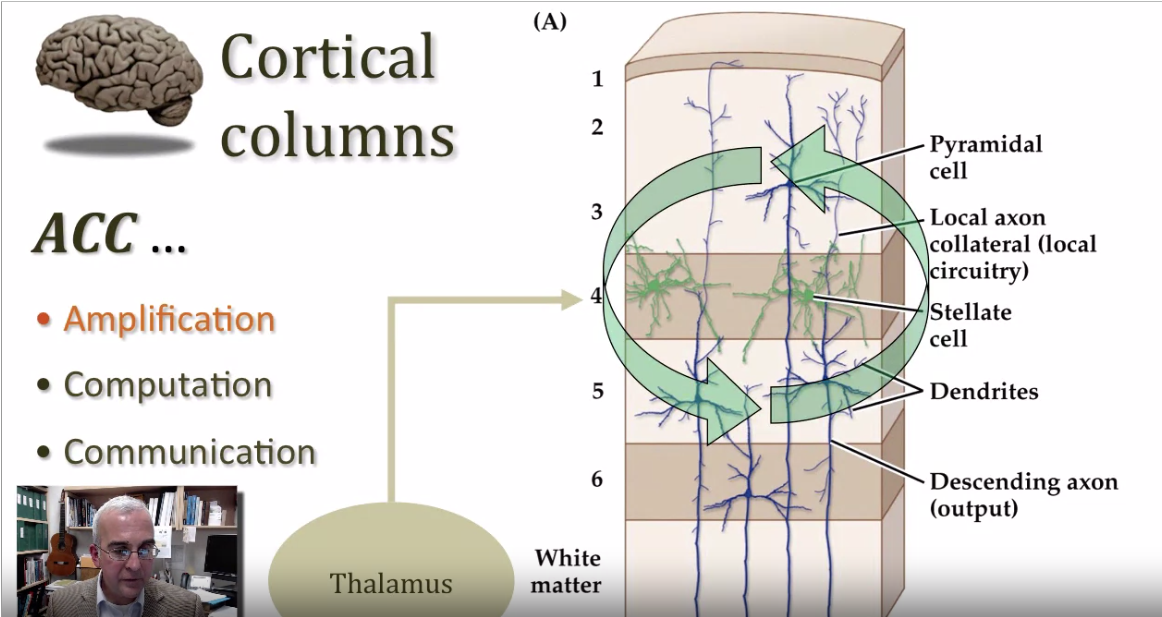
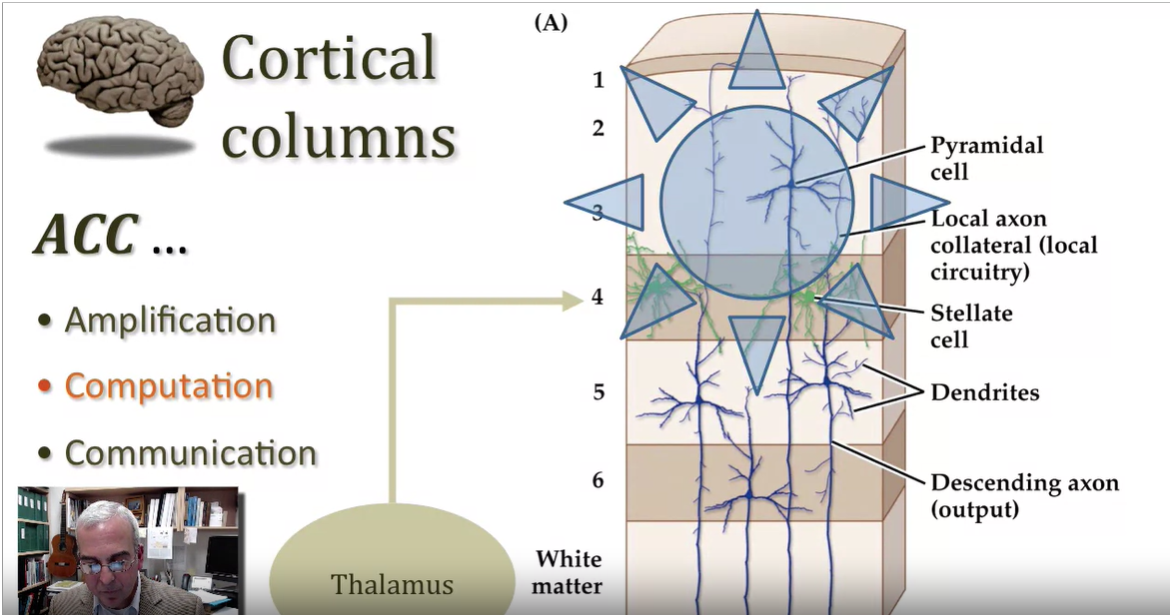
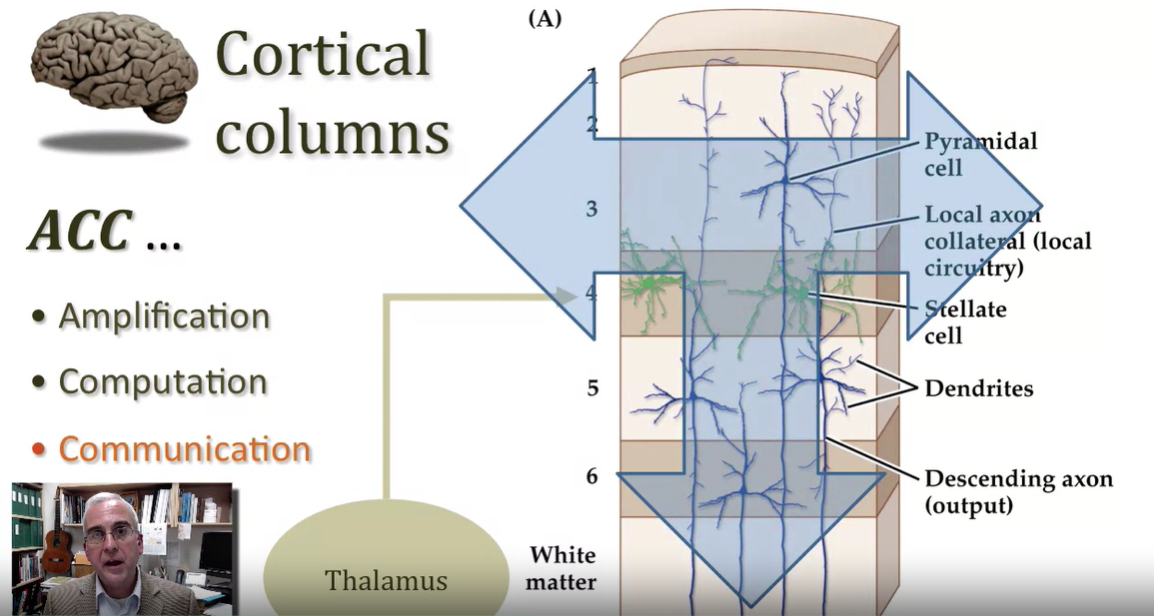
- Cortical cytoarchitecture:
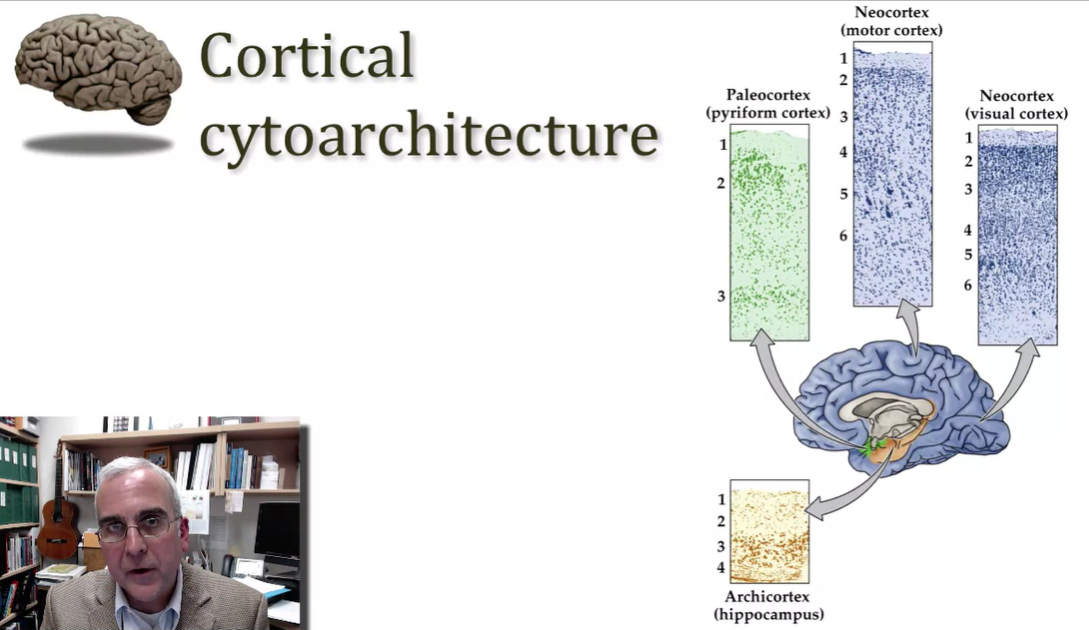 注:motor相比于visual的layer4细胞更少,是因为其主要是输出的神经元
注:motor相比于visual的layer4细胞更少,是因为其主要是输出的神经元 - Brodmann分区:
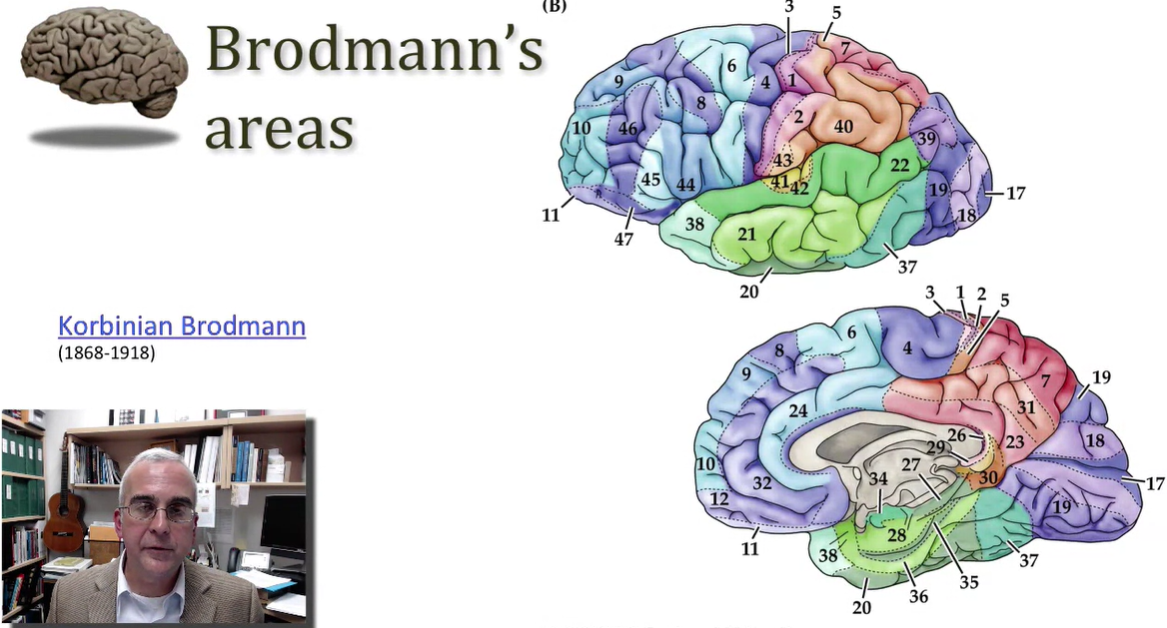
General Principles of Sensory Systems
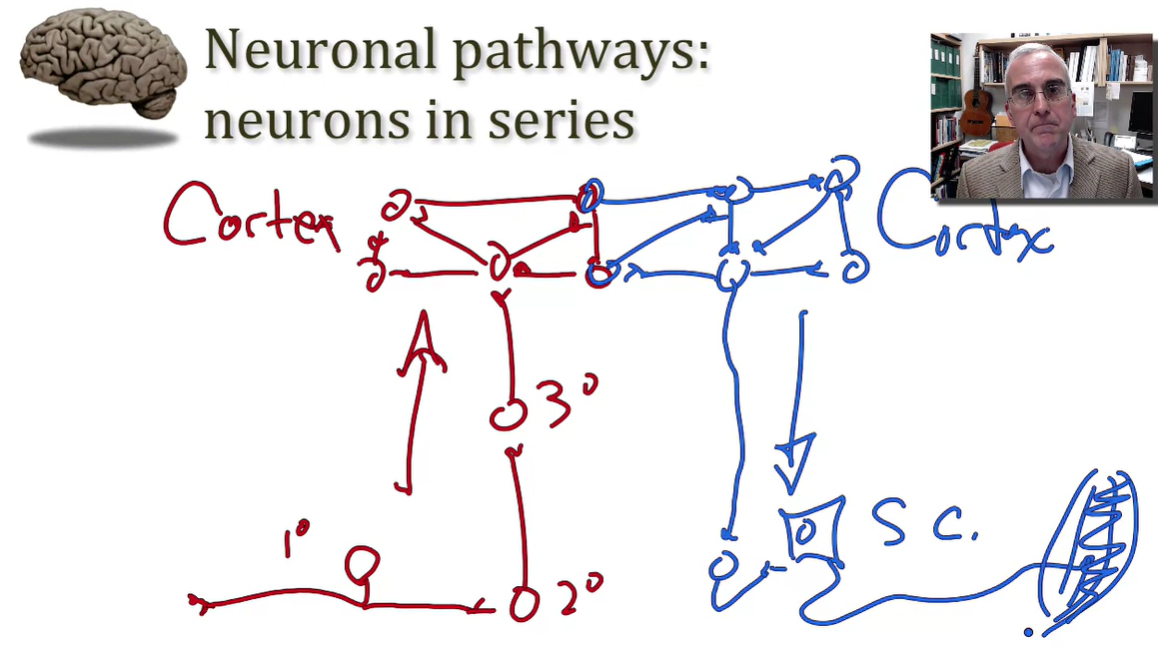
- Deccussations:
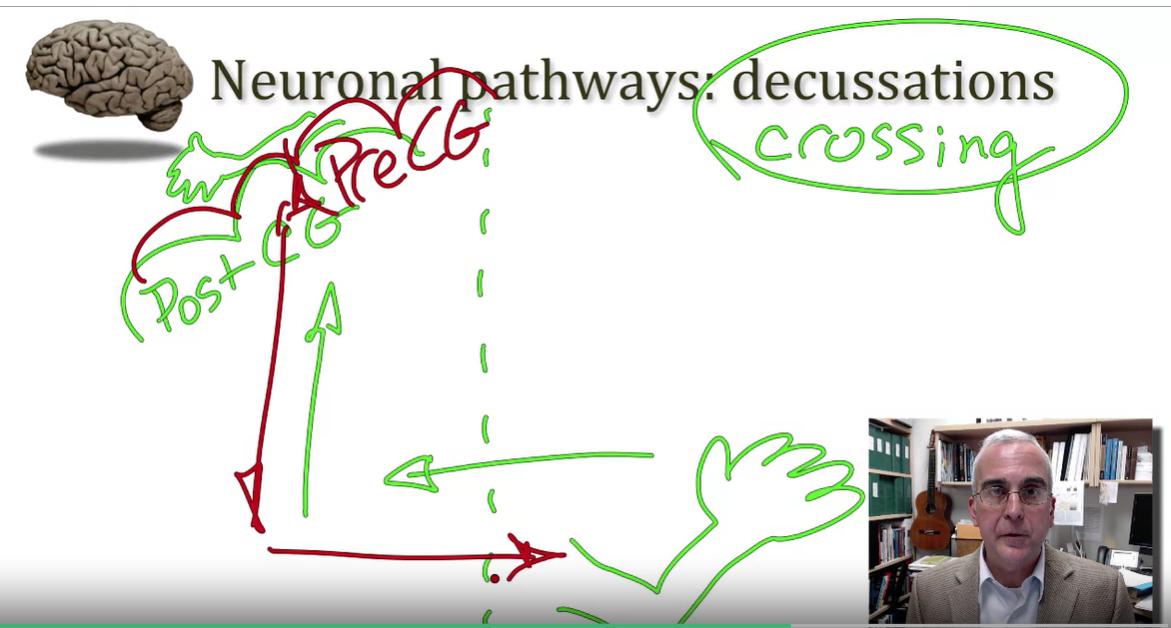
- Sensory Transduction:
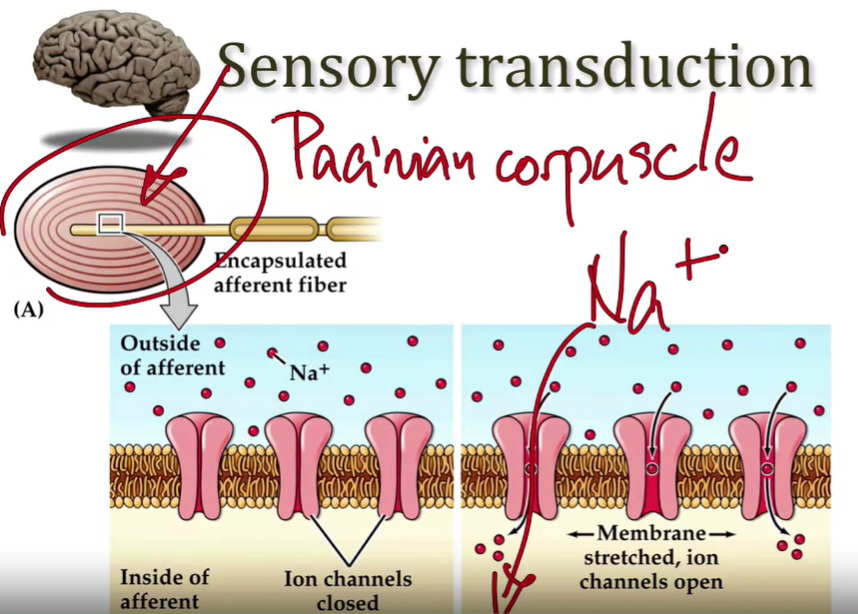
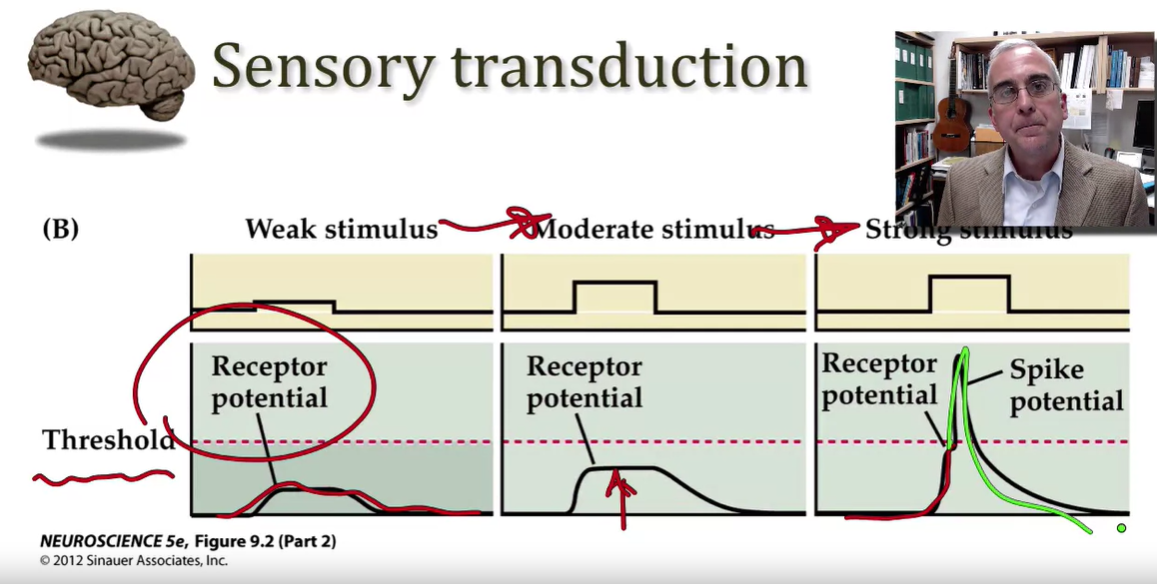
- Information coding:
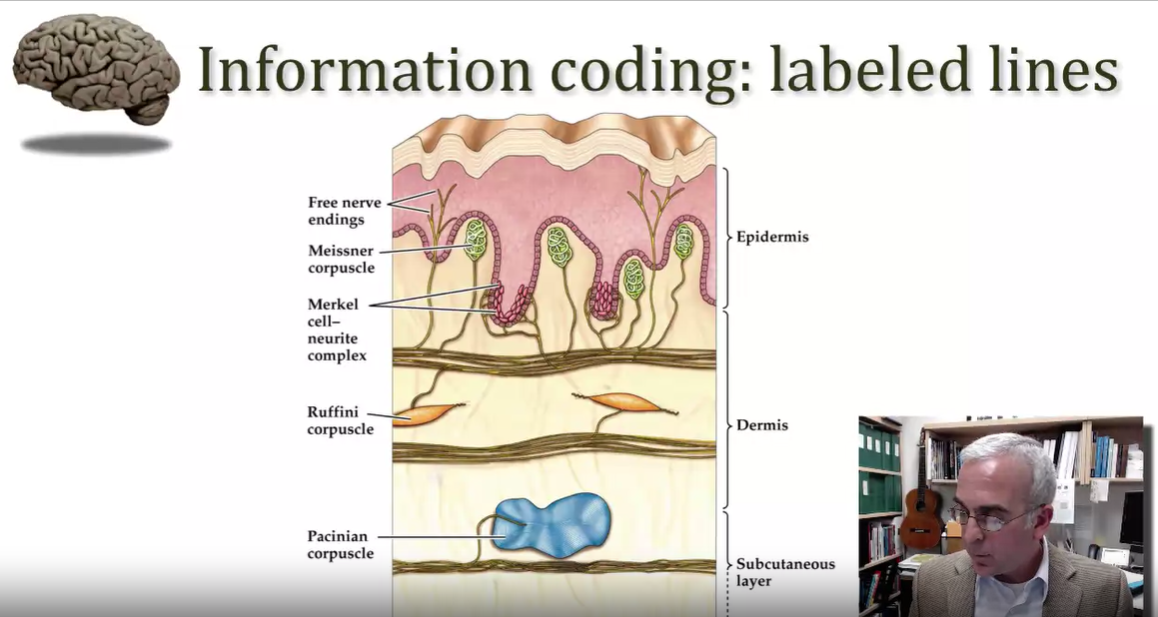 注:1. Pacinian corpuscle(Be senstive to vibration/震动) 2.Meissner corpuscle(对light touch敏感)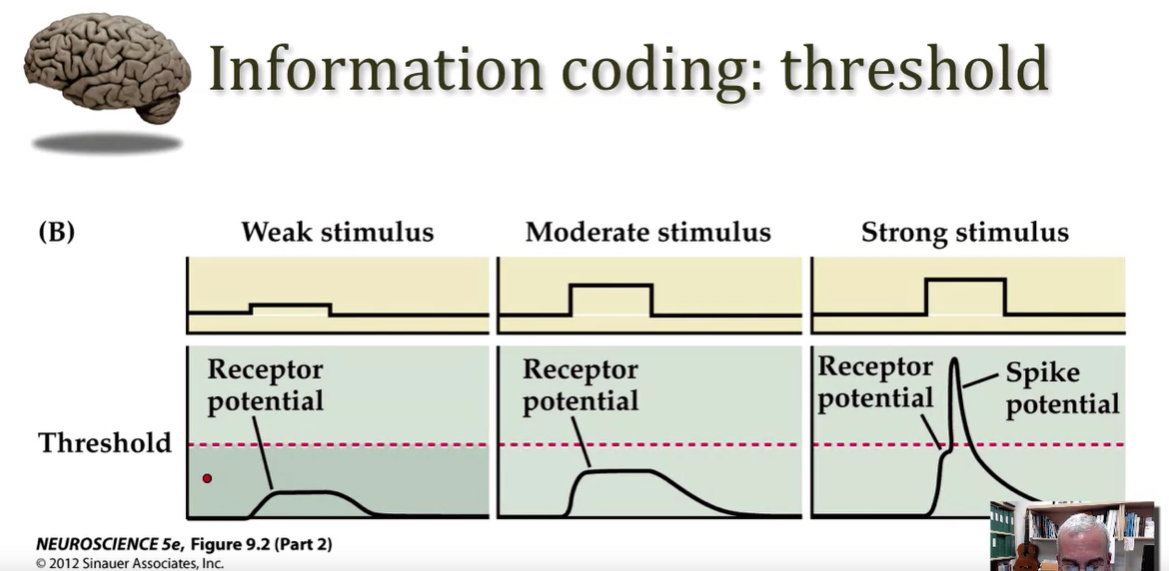 注:不同的感觉有不同的Threshold.
注:不同的感觉有不同的Threshold.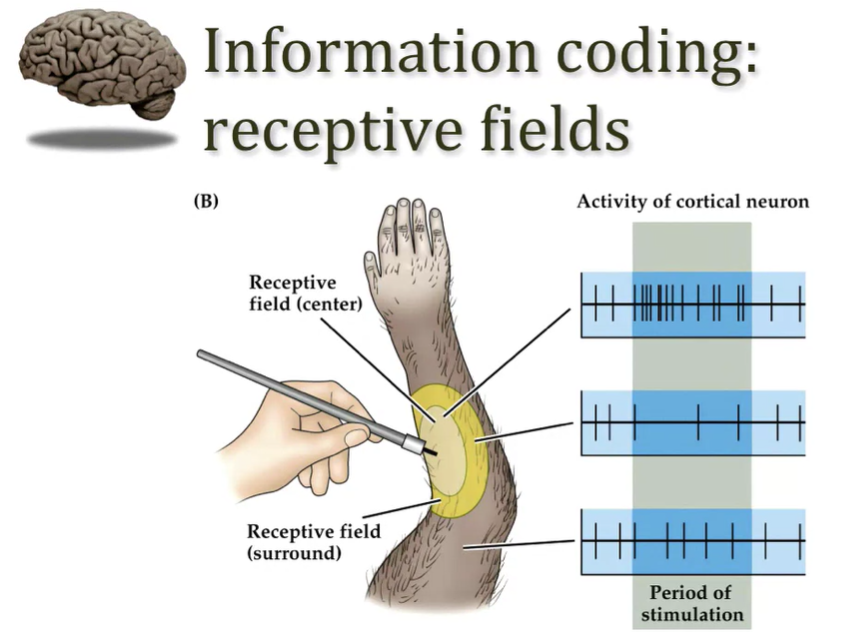
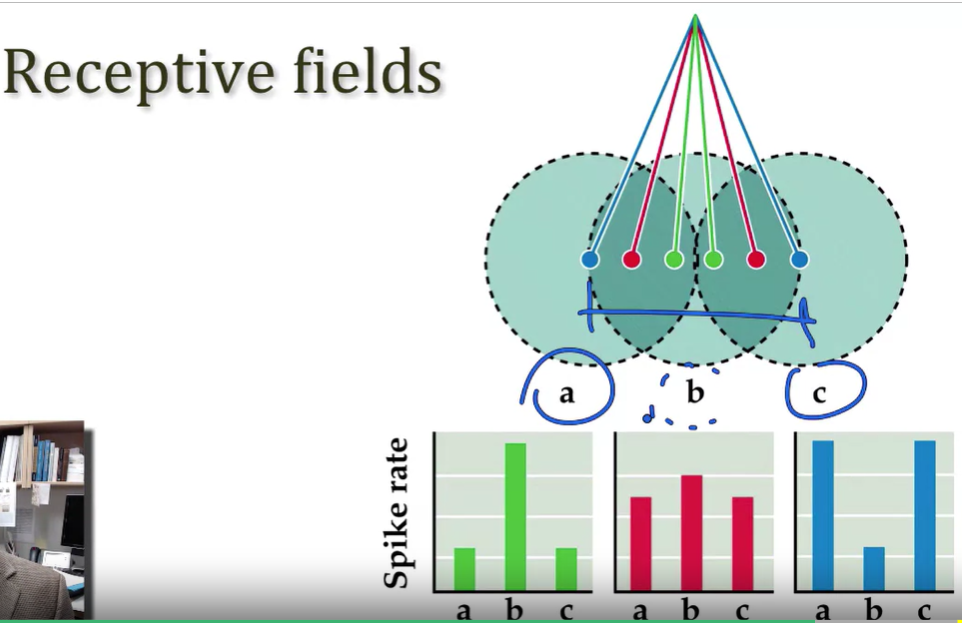
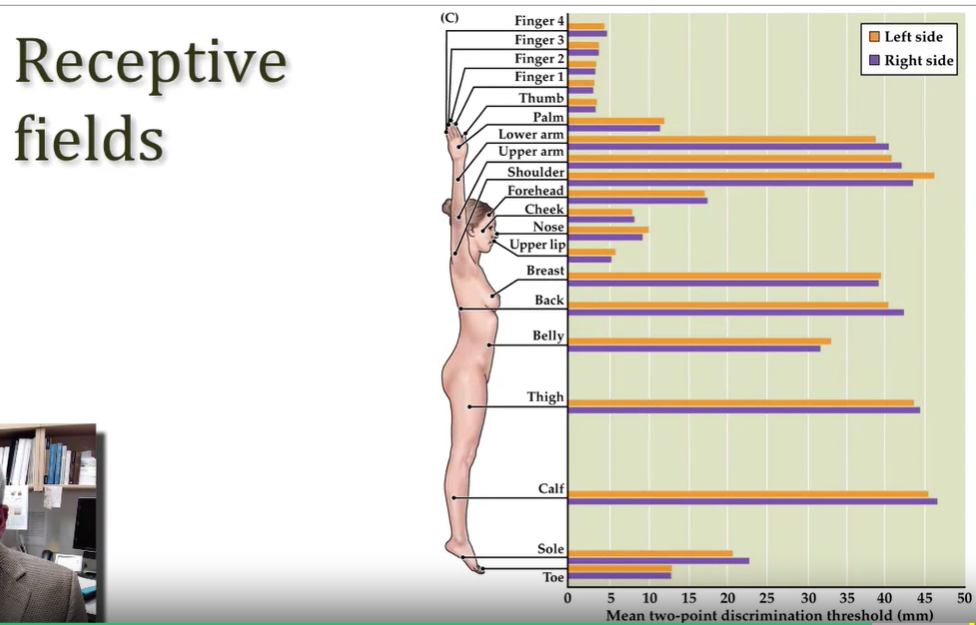
Somatic sensation
Organization of somatic sensation: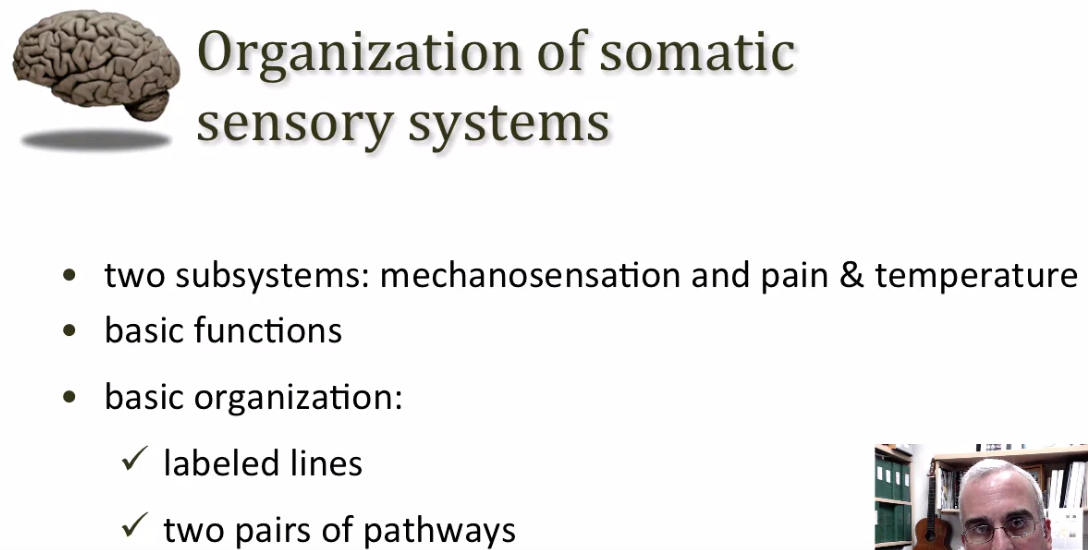
- Mechanosensation(机械感受):
- Peripheral mechanosensation elements:
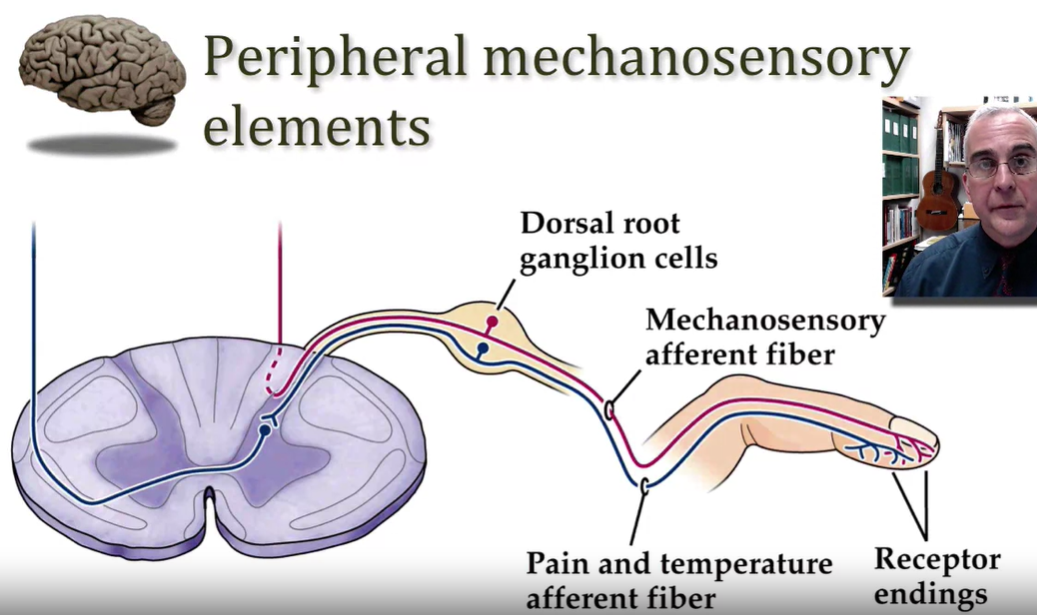 注:1. Dorsal root ganglion cells:假单极;mechanosensory的轴突达到dorsal column,而Pain的轴突达到dorsal horn
注:1. Dorsal root ganglion cells:假单极;mechanosensory的轴突达到dorsal column,而Pain的轴突达到dorsal horn 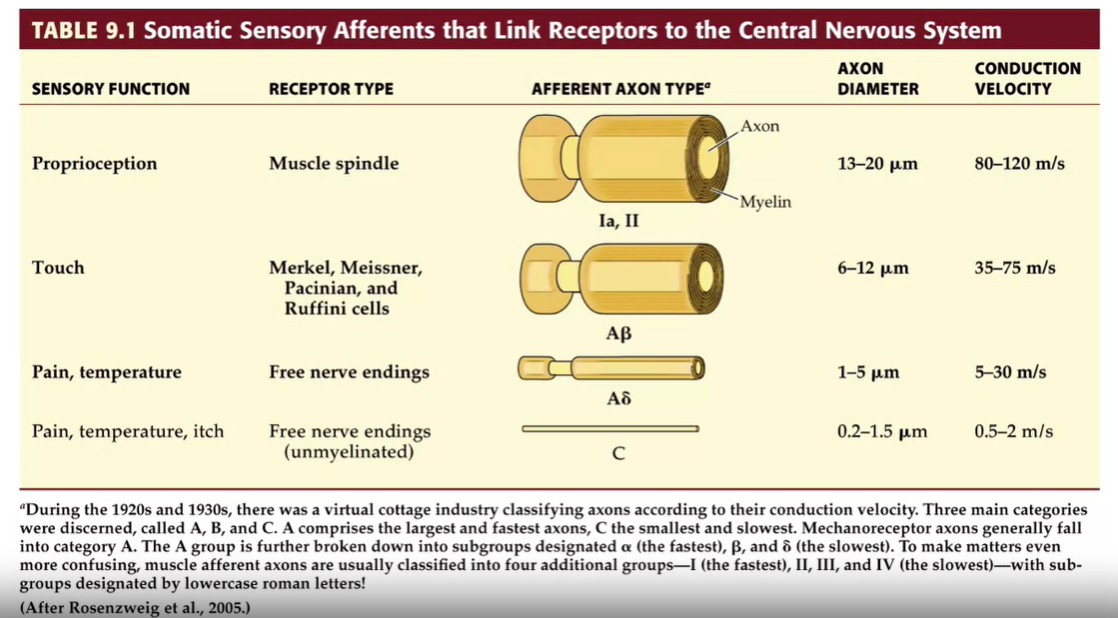
- Sensory Transduction:
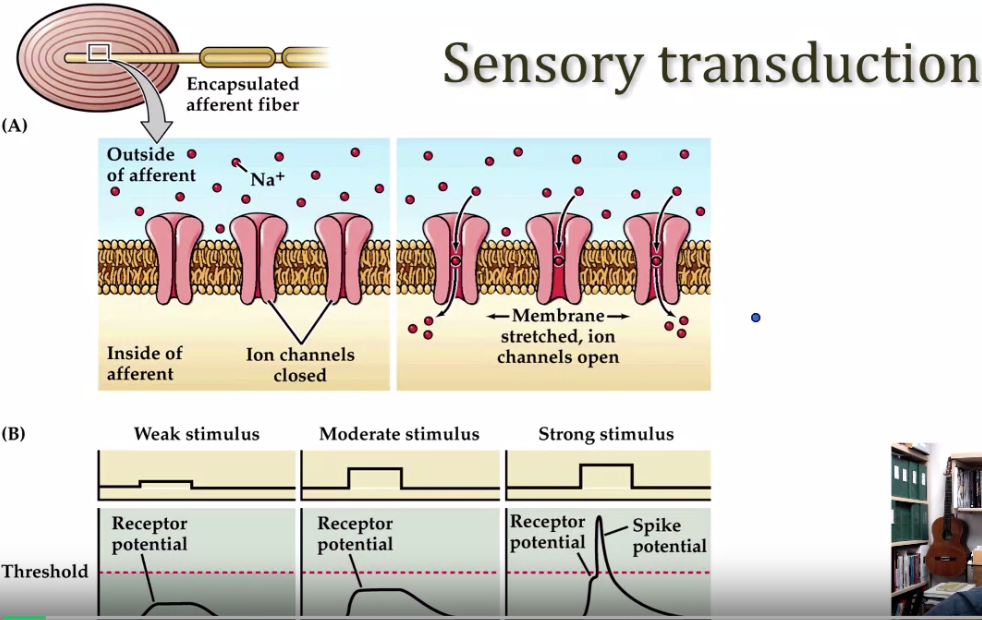
- Peripheral elements:
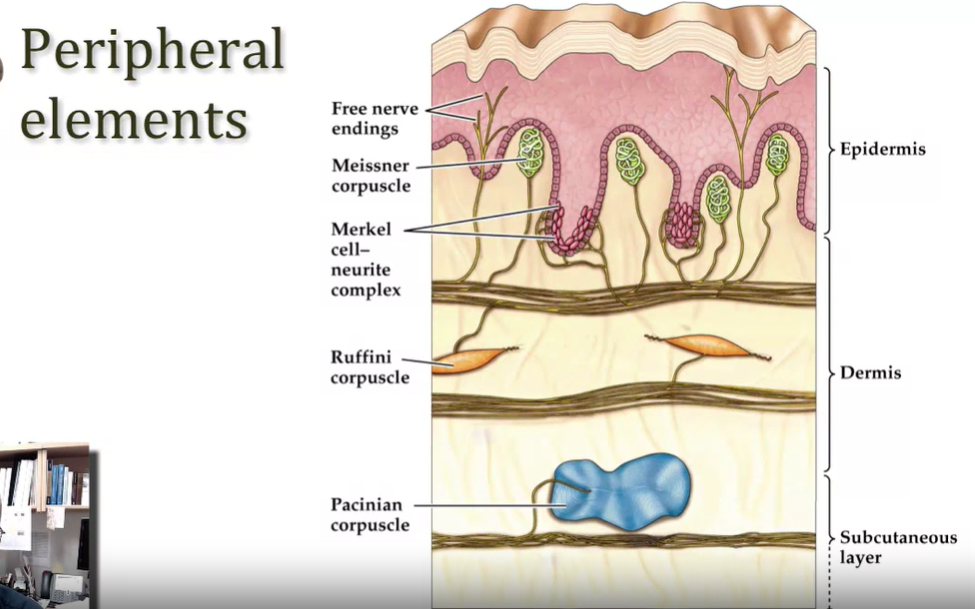 注:Meissner corpuscle(schwann cell)+MCN complex(dermal papillae)对mechanical deformation敏感,都是对light touch作出反应;Ruffini corpuscle对stretch敏感;Pacinian corpuscle对Vibration(震动)敏感。
注:Meissner corpuscle(schwann cell)+MCN complex(dermal papillae)对mechanical deformation敏感,都是对light touch作出反应;Ruffini corpuscle对stretch敏感;Pacinian corpuscle对Vibration(震动)敏感。 - Afferent systems:
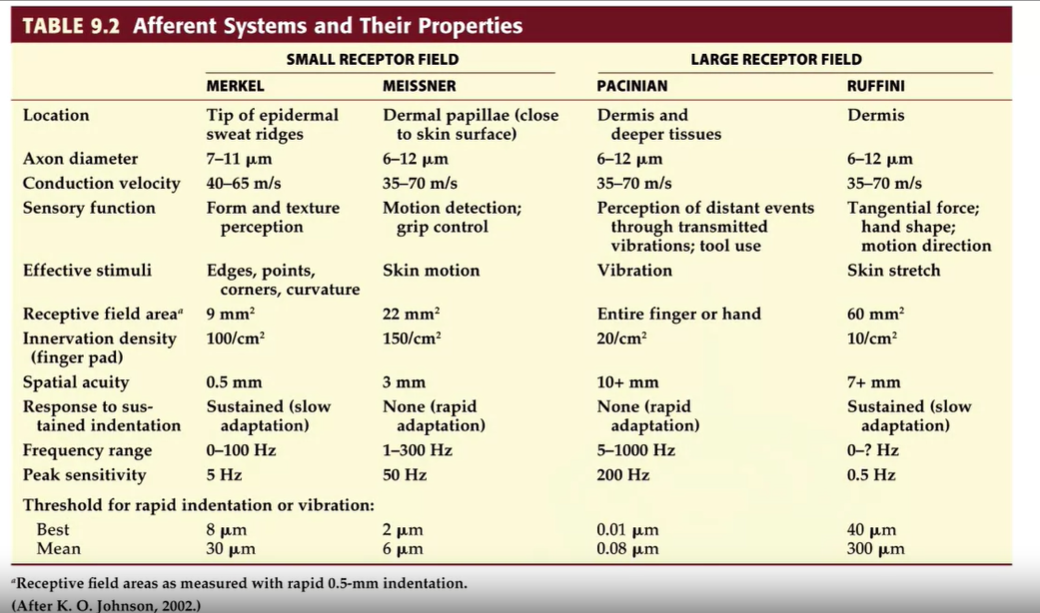
- Some additional types of receptors:
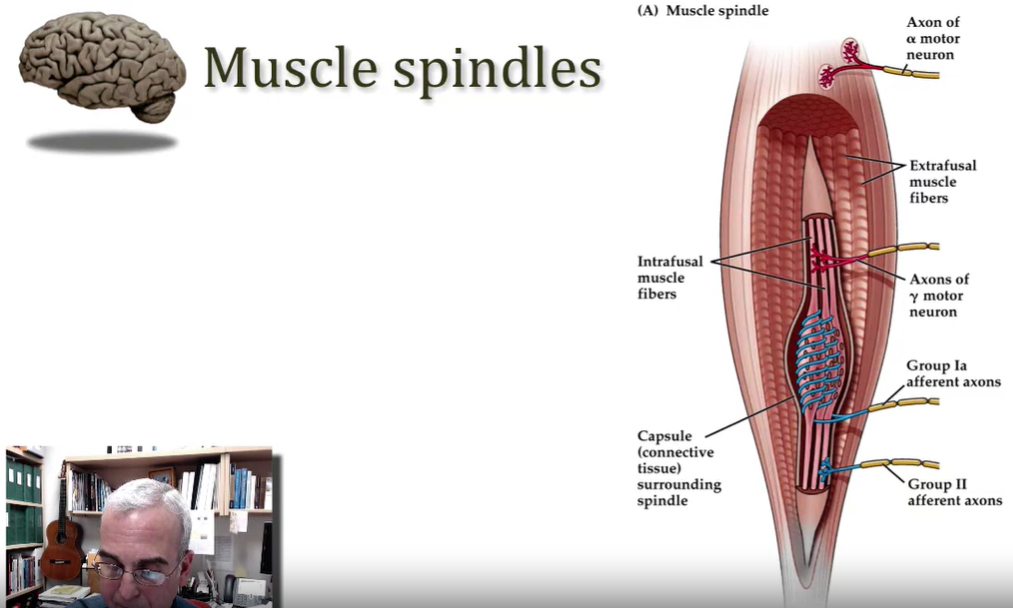 注:Ia+II使得muscle spindles 传递信号到spinal cord(与stretch有关)
注:Ia+II使得muscle spindles 传递信号到spinal cord(与stretch有关)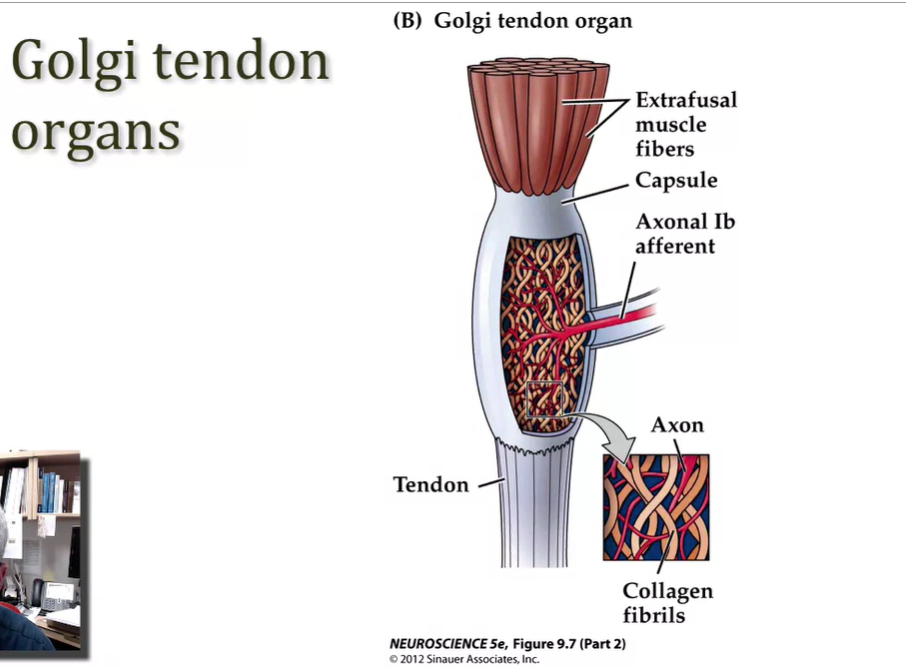 注:其对Muscle force敏感
注:其对Muscle force敏感 - Somatic sensory of the thalamus:
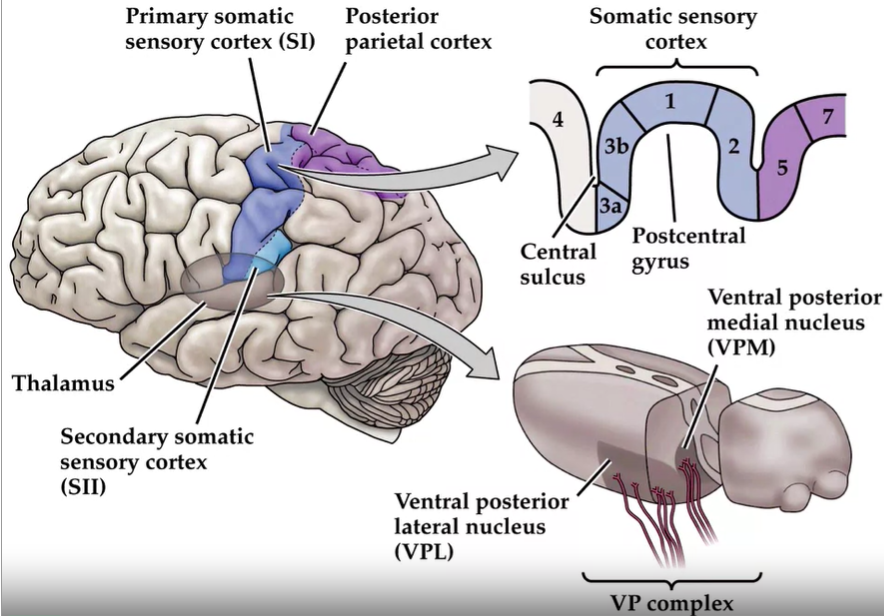 注:SI首先接受mechanosensory information
注:SI首先接受mechanosensory information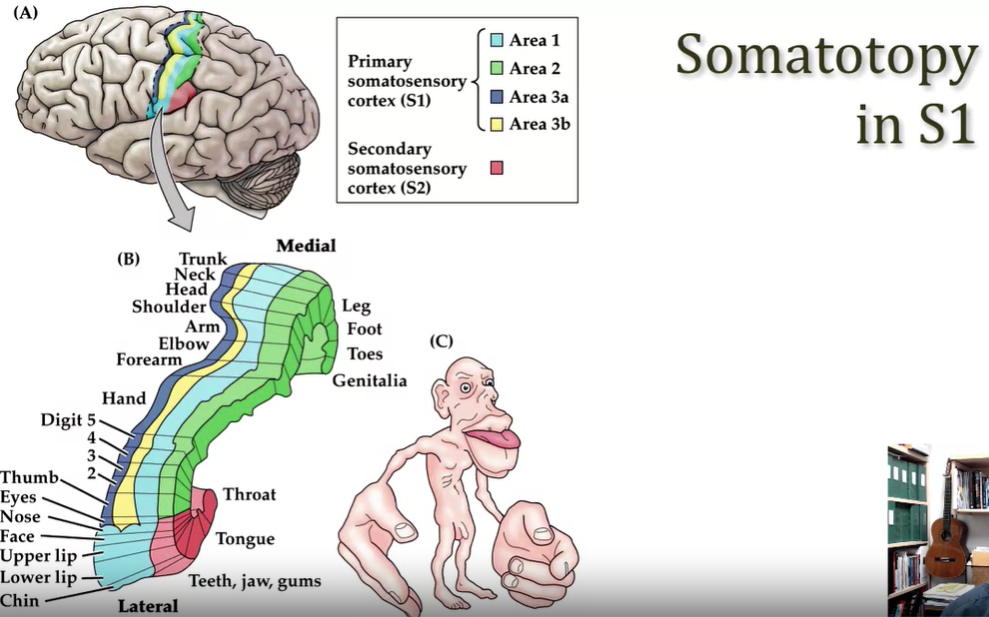 注:3a参与proprioceptor(自感,如6中所提到的), 3b参与cutaneous receptor(皮肤感受器,如touch), 1参与对皮肤表面的复杂刺激, 2参与到对物体形状的识别。
注:3a参与proprioceptor(自感,如6中所提到的), 3b参与cutaneous receptor(皮肤感受器,如touch), 1参与对皮肤表面的复杂刺激, 2参与到对物体形状的识别。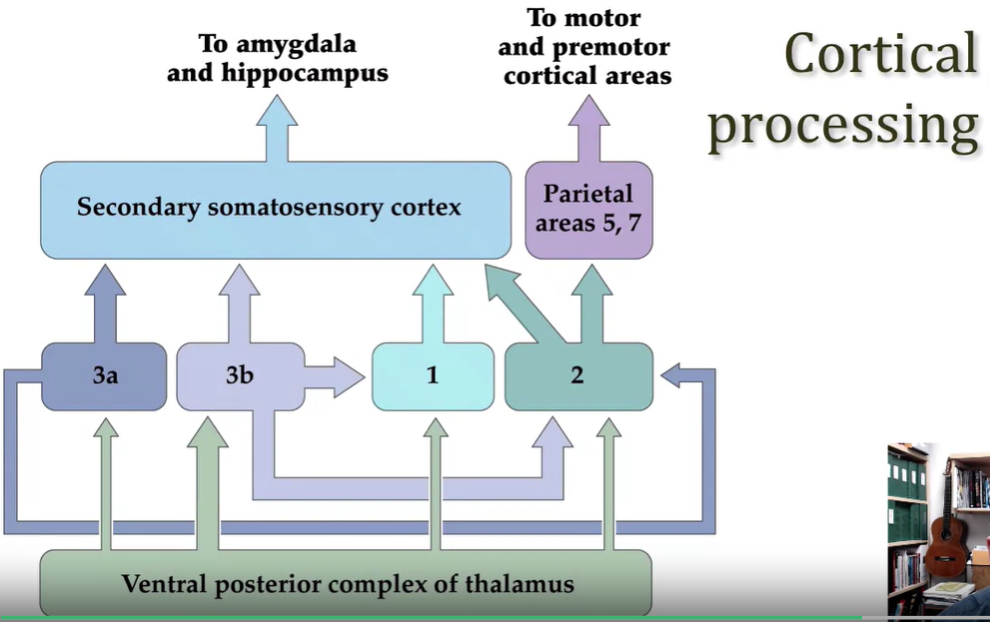 题目:Considering just the consequences for somatic sensation, what do you expect to result from a stroke involving the right middle cerebral artery?——Anesthesia over the left side of the face and left arm, but sparing the left leg.
题目:Considering just the consequences for somatic sensation, what do you expect to result from a stroke involving the right middle cerebral artery?——Anesthesia over the left side of the face and left arm, but sparing the left leg.
- Peripheral mechanosensation elements:
- Mechanosensory pathways: Somatic sensory system
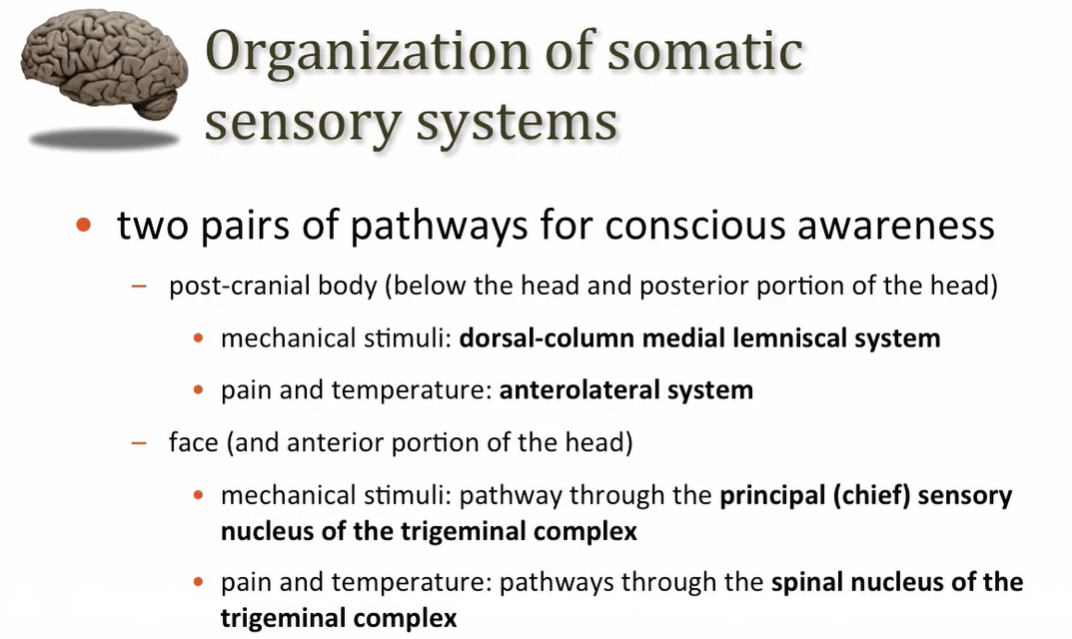
- DCMLS:
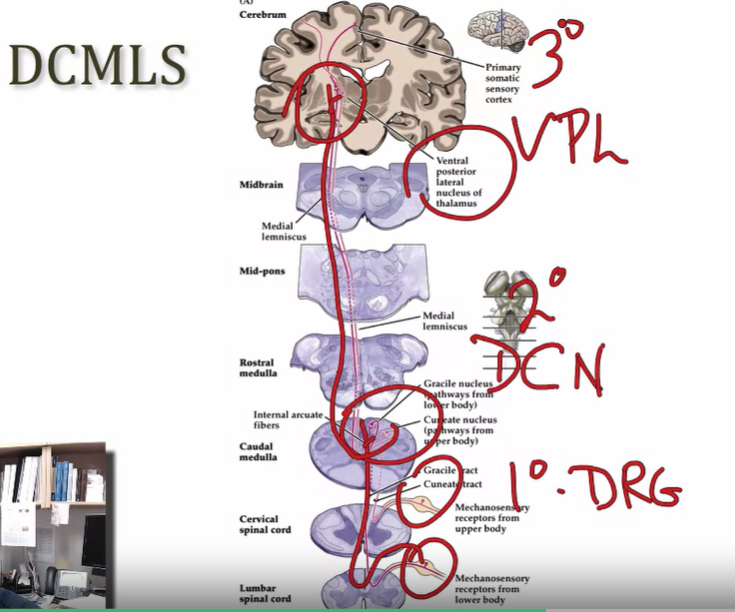 注:1.DRG(Dorsal-root ganglion cell)2.DCN(Dorsal column nuclear)
注:1.DRG(Dorsal-root ganglion cell)2.DCN(Dorsal column nuclear)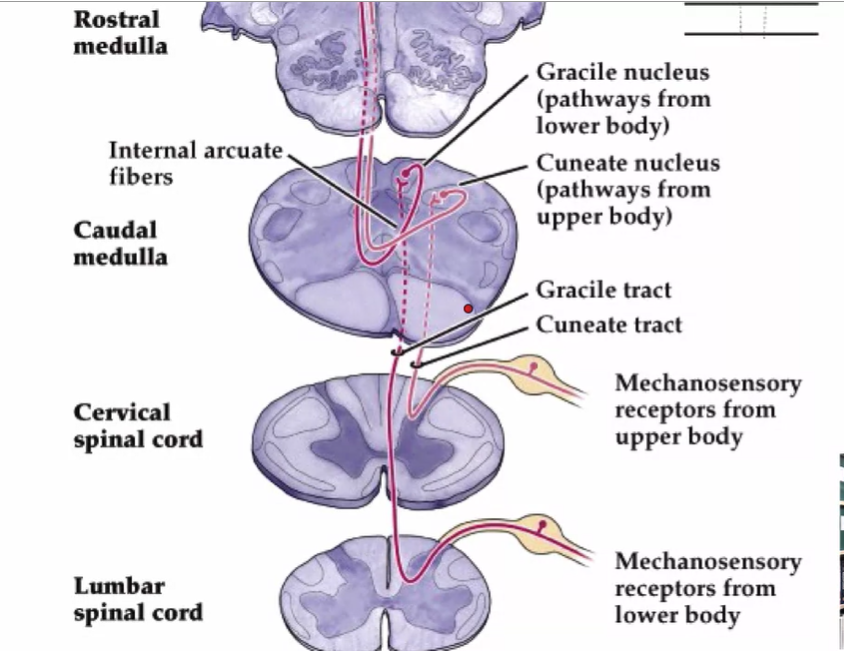
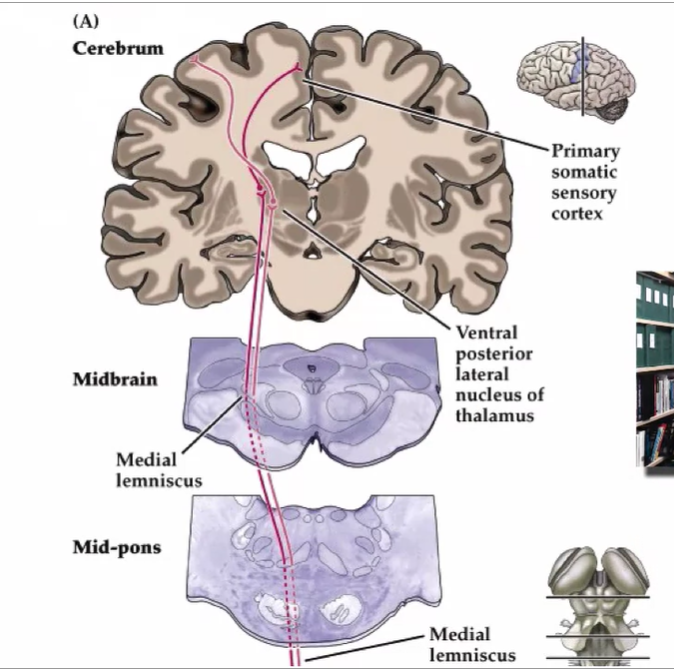 注:最终结束在PCL(Precentral gyrus)附近。
注:最终结束在PCL(Precentral gyrus)附近。 - PSNOTTC:
 注:1.TG 2.PNOTC 3. VPM
注:1.TG 2.PNOTC 3. VPM - Spinocerebellar pathways:
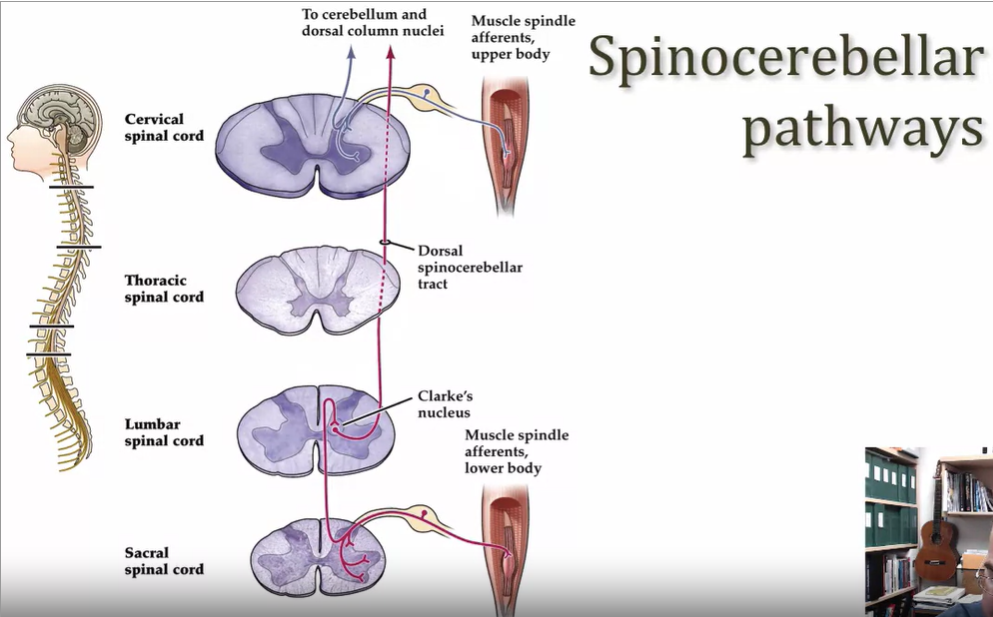
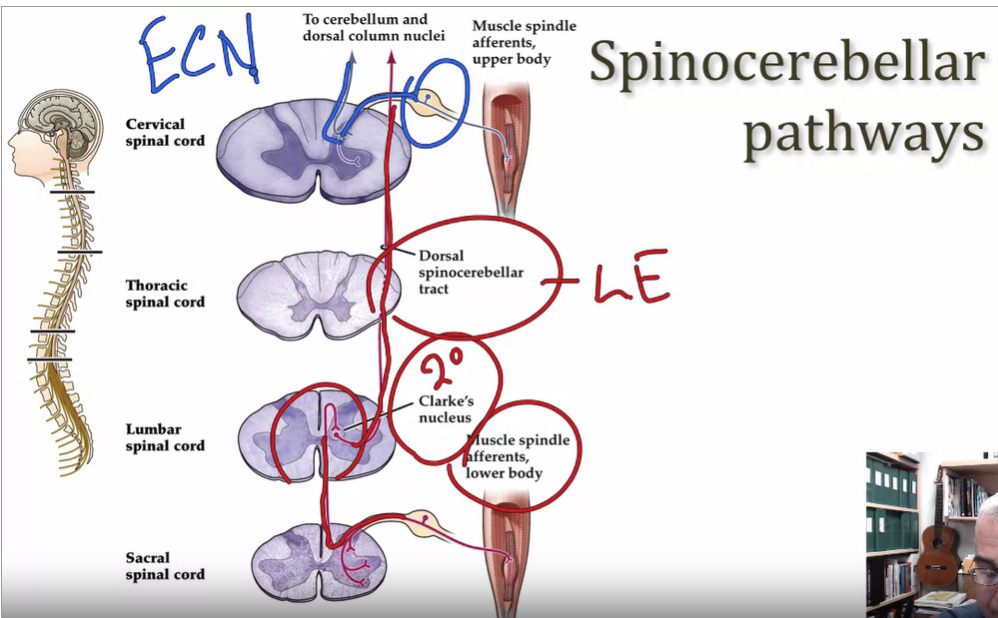
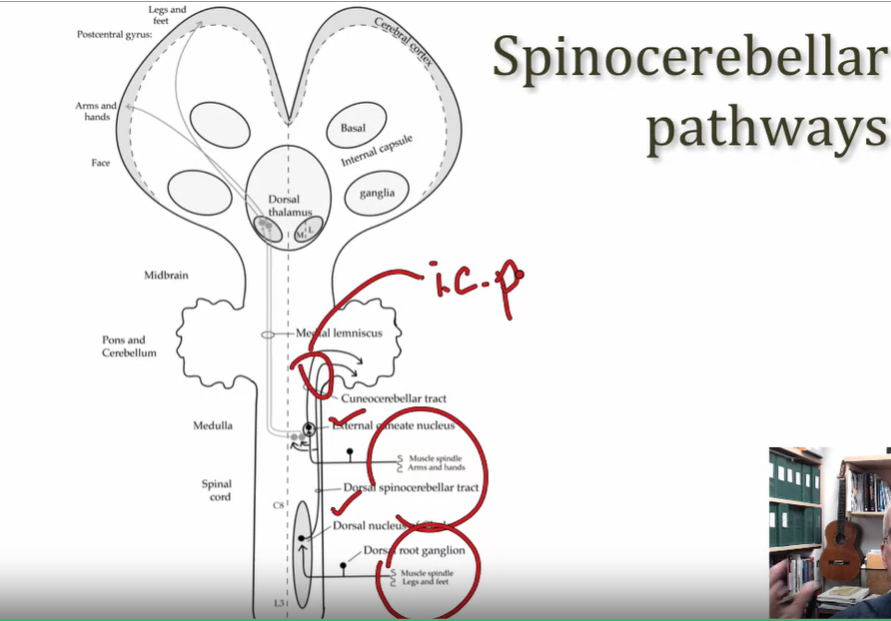
- DCMLS:
- Pain systems:
- Complex Phenomenology of pain:
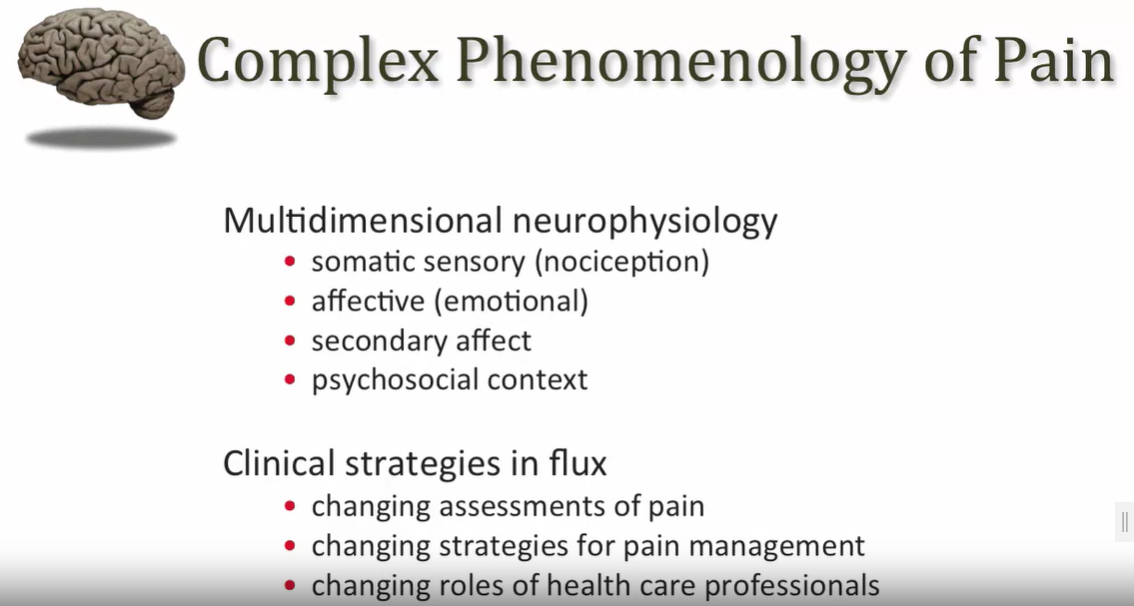
- Somatic sensationNociception(伤害感受):
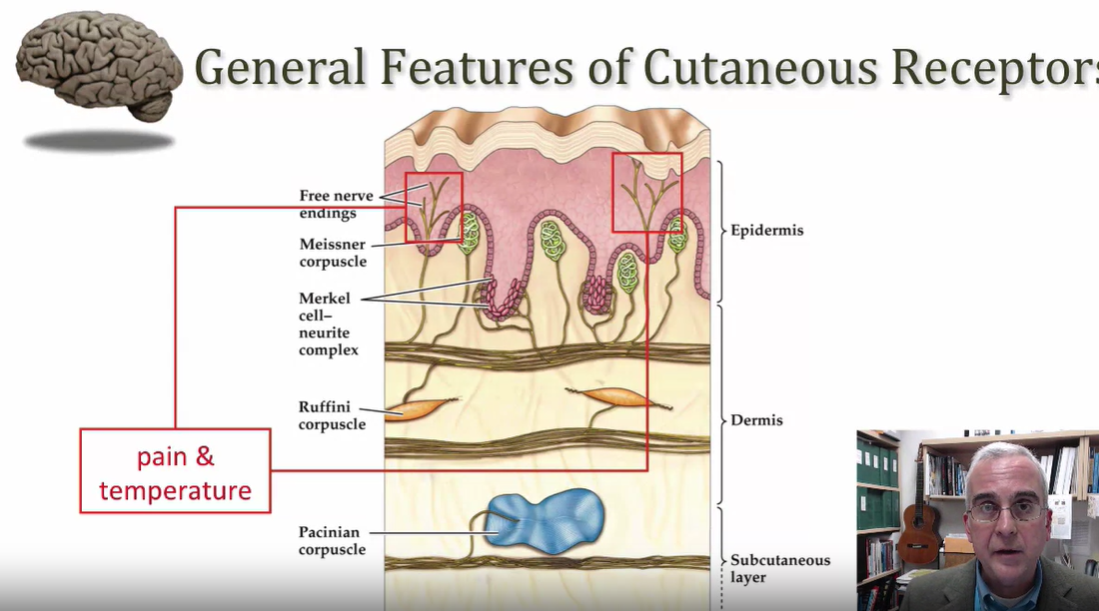
- Sensory Transduction:
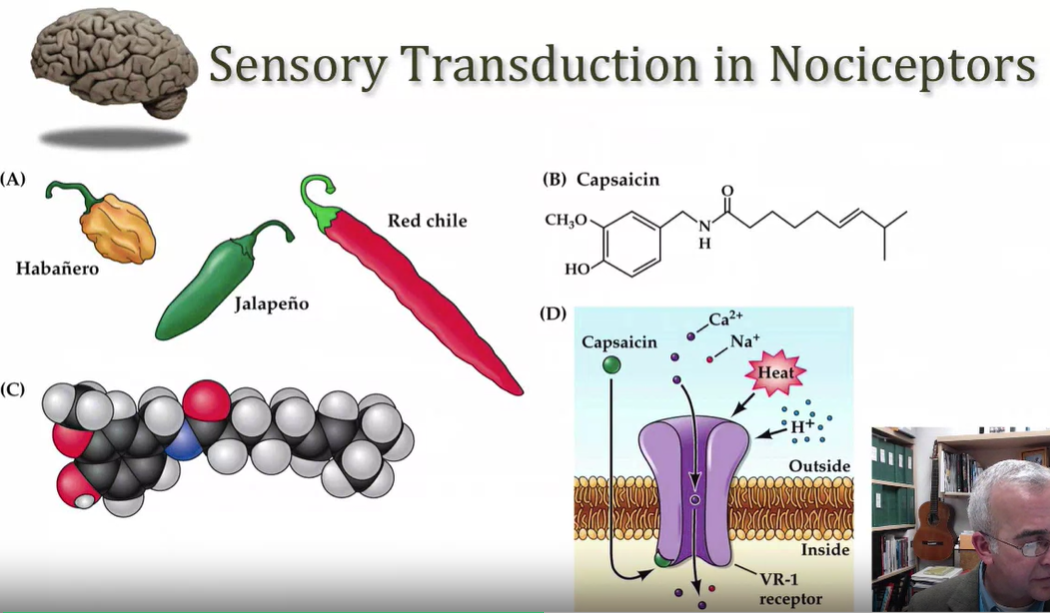
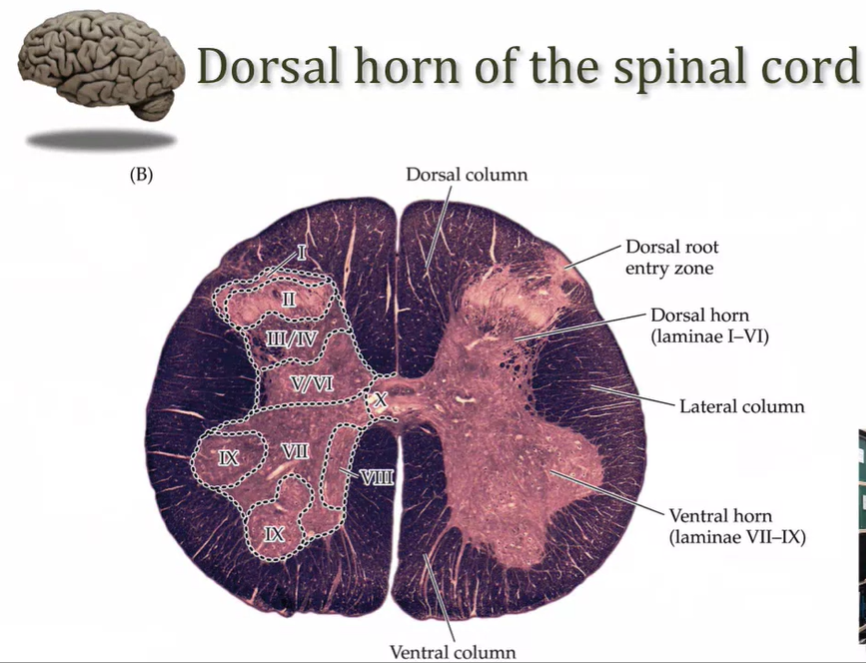
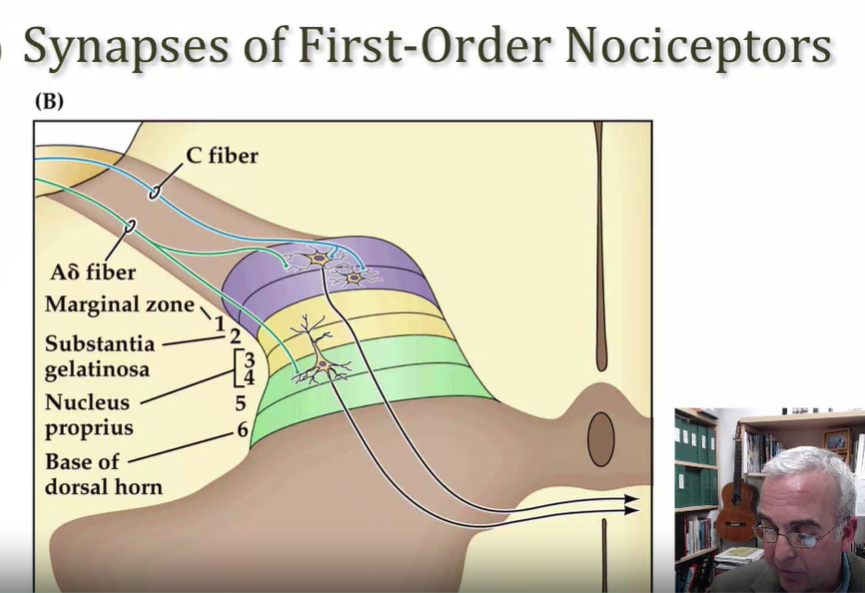
- Pain sensation:
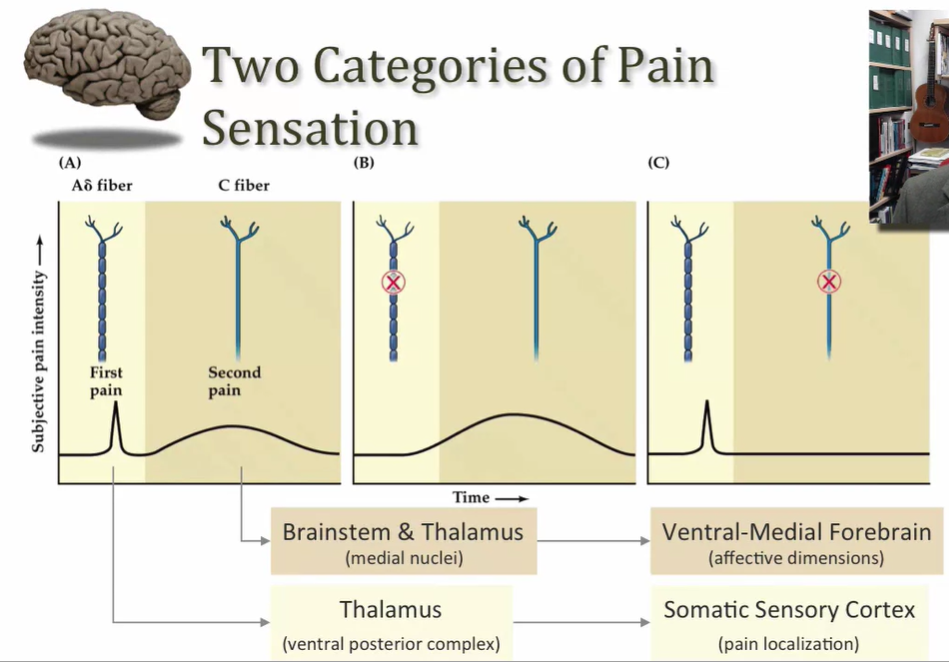
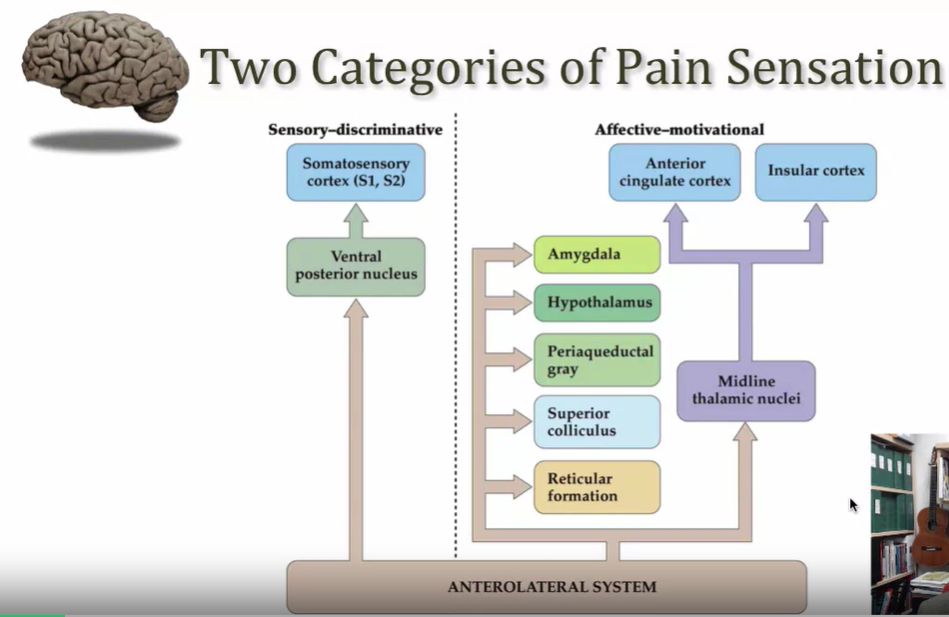 注:左边是First pain,右边是Second pain
注:左边是First pain,右边是Second pain - Neuron factors:
- 痛觉过敏:
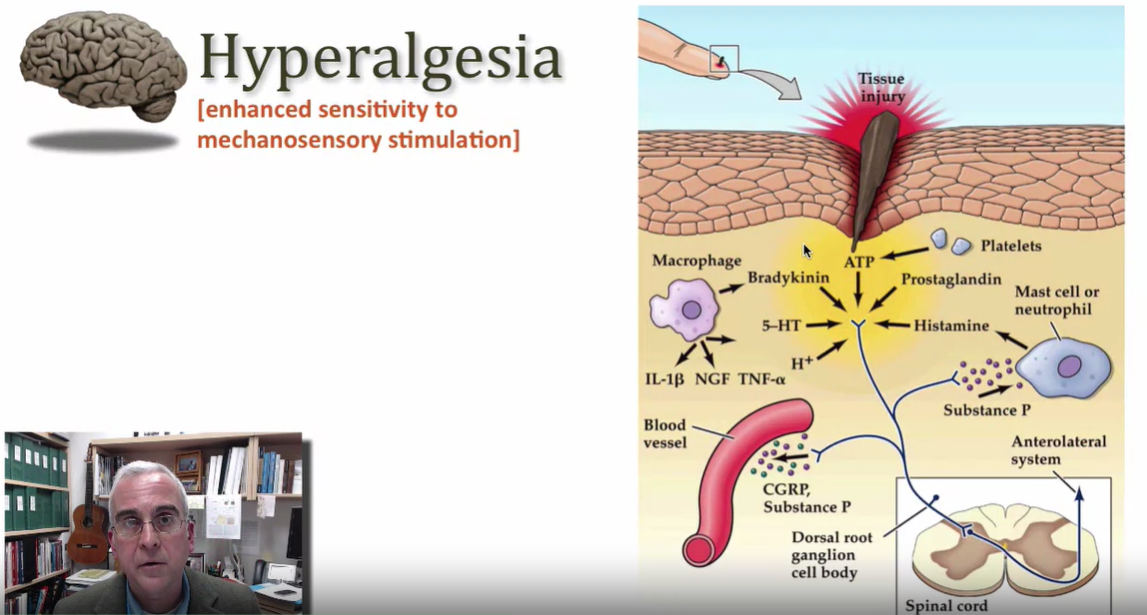
- 痛觉过敏:
- Descending pathways:
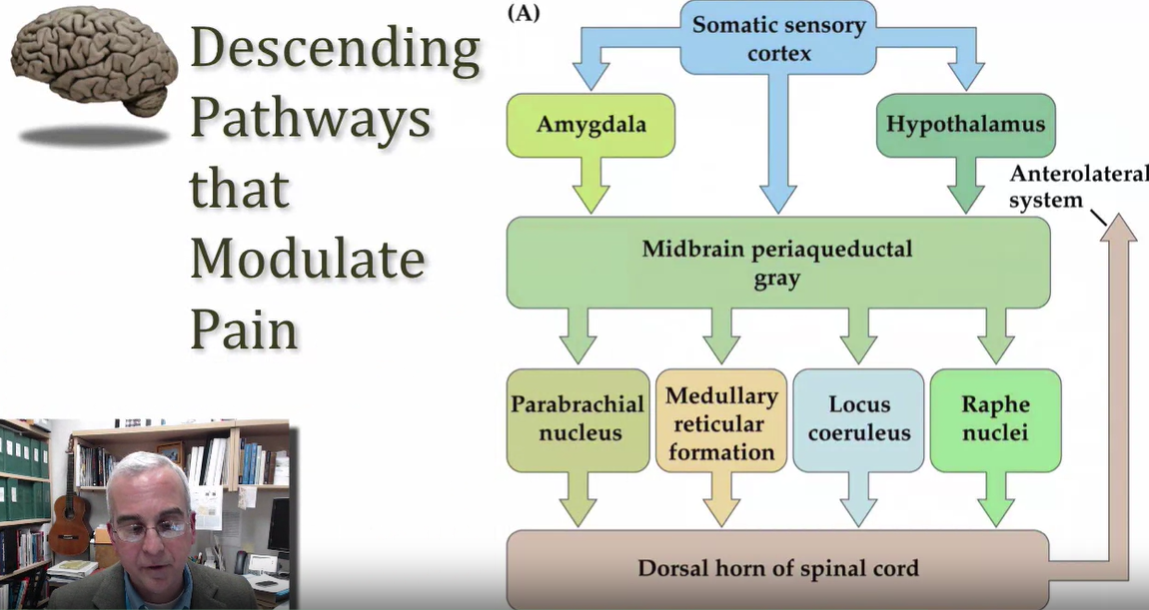
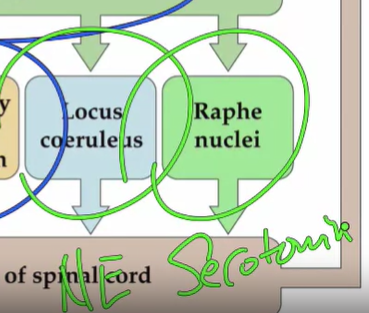
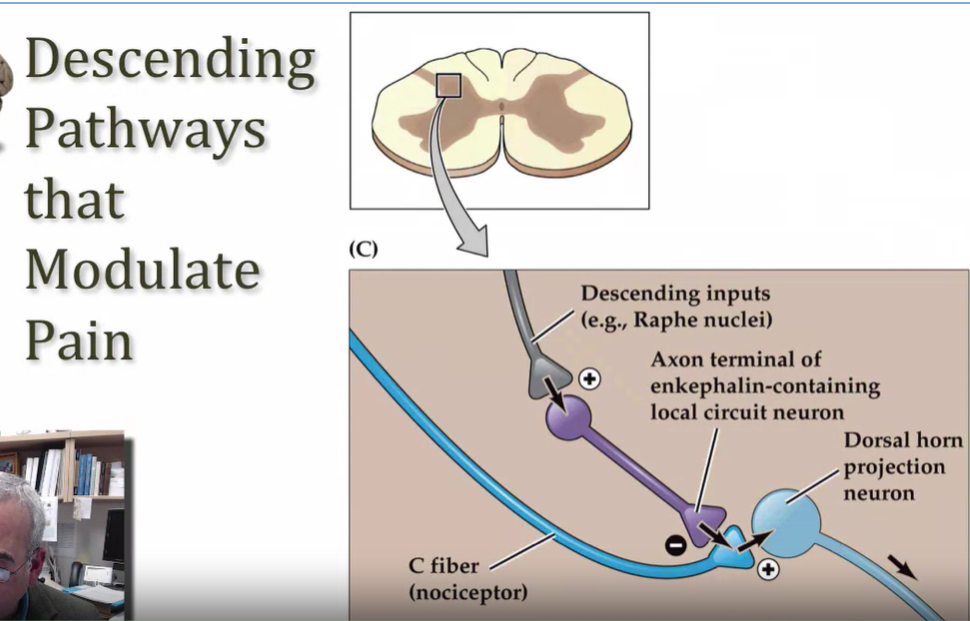
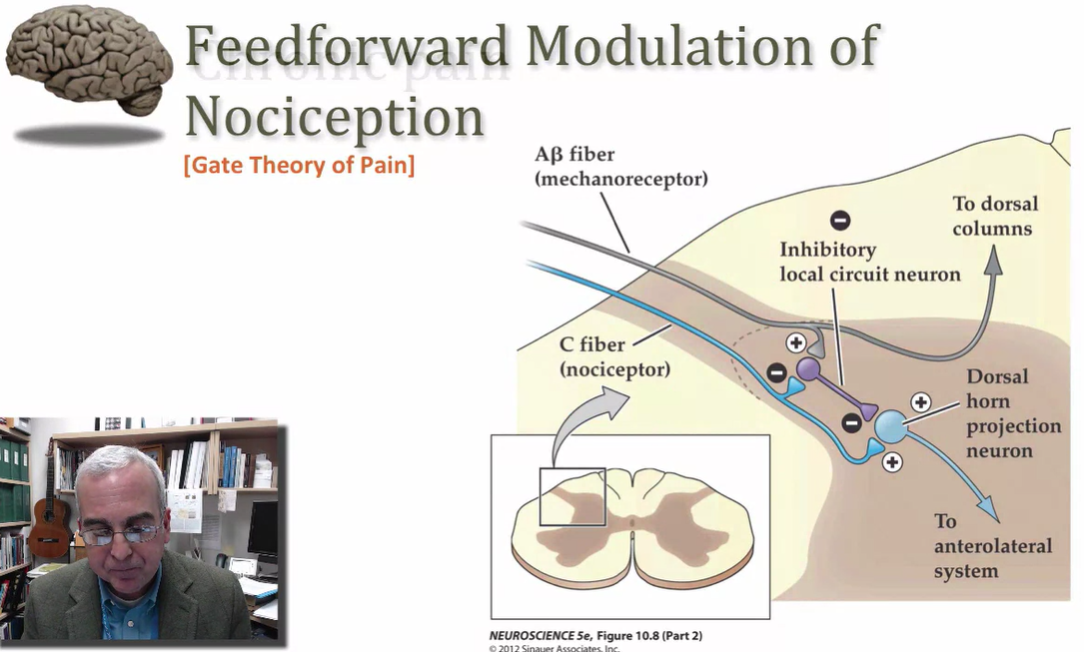
- Chronic pain:
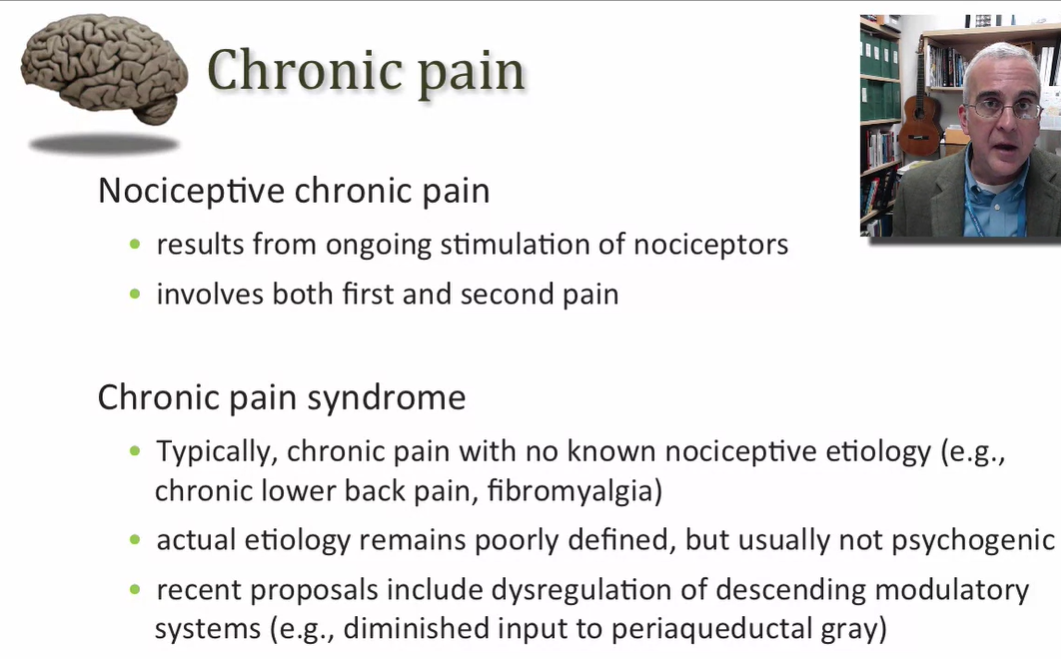
- Neuropathic pain
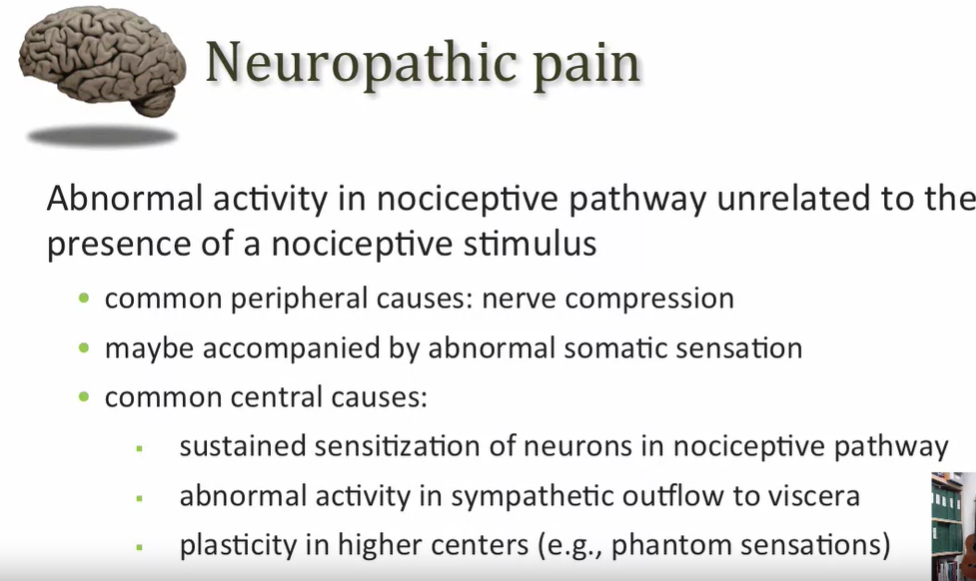
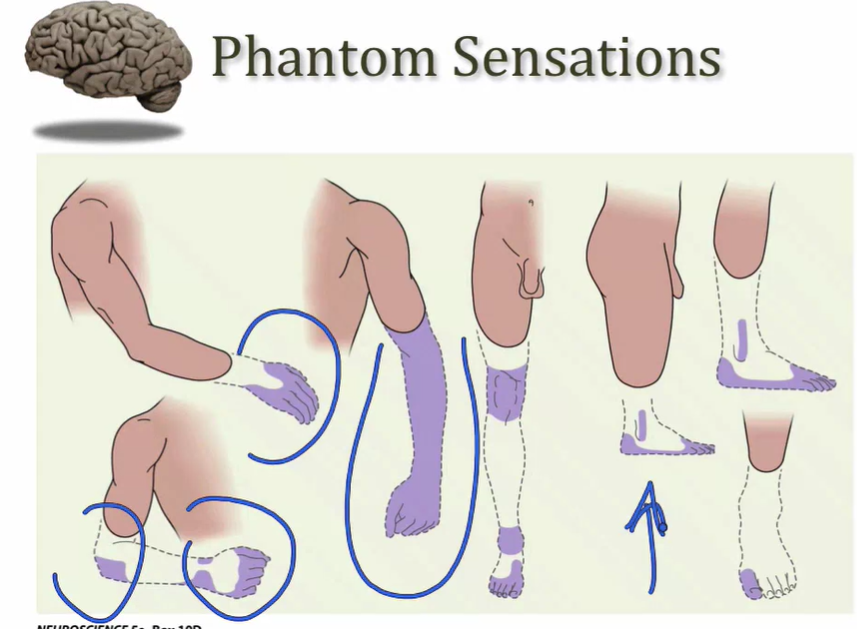
- Sensory Transduction:
- Complex Phenomenology of pain:
- Pain and Temperature Pathways:
- Anterolateral systems:
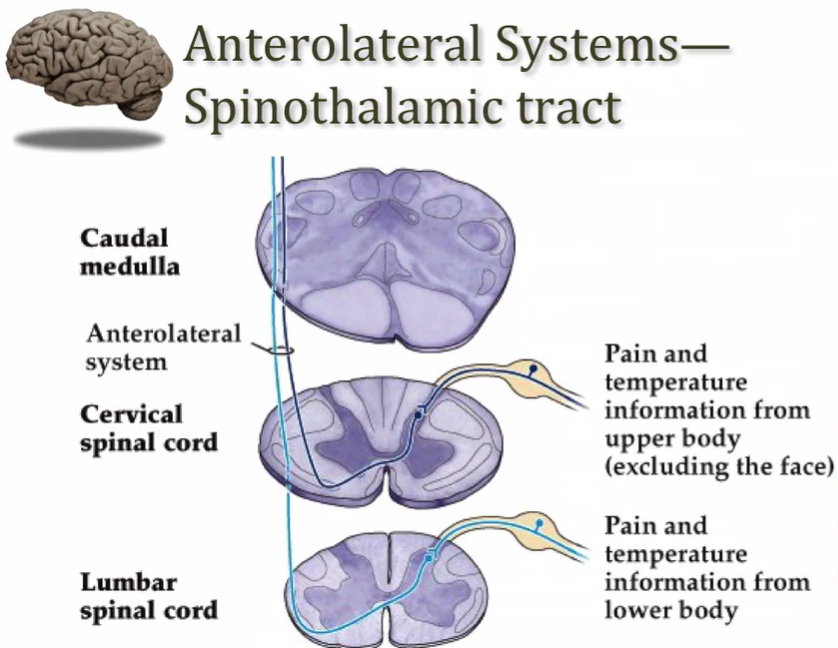
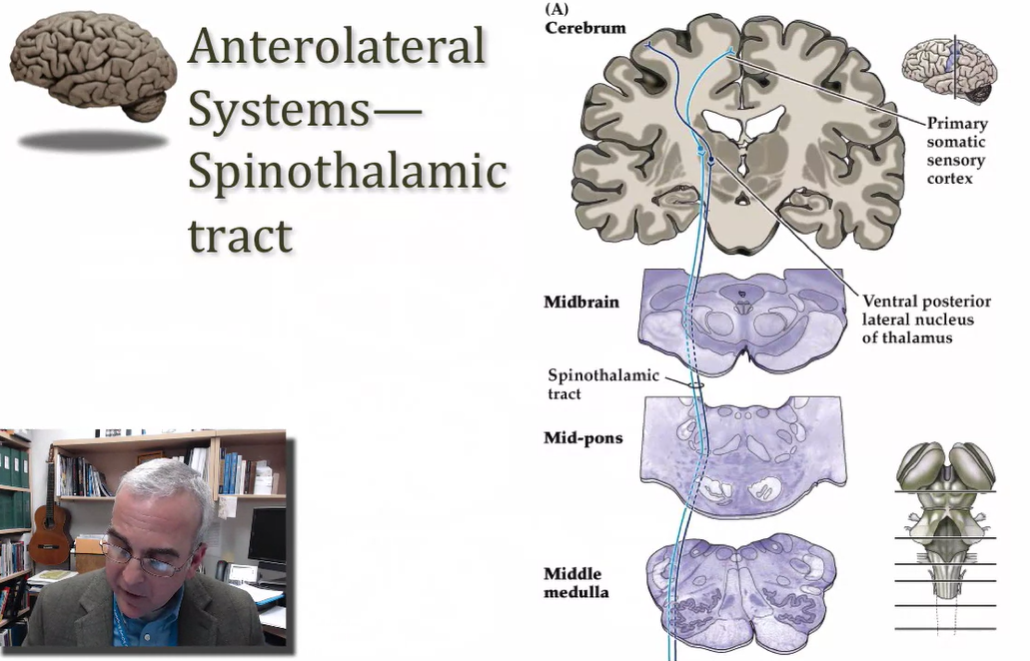
- Trigeminothalamic tract:
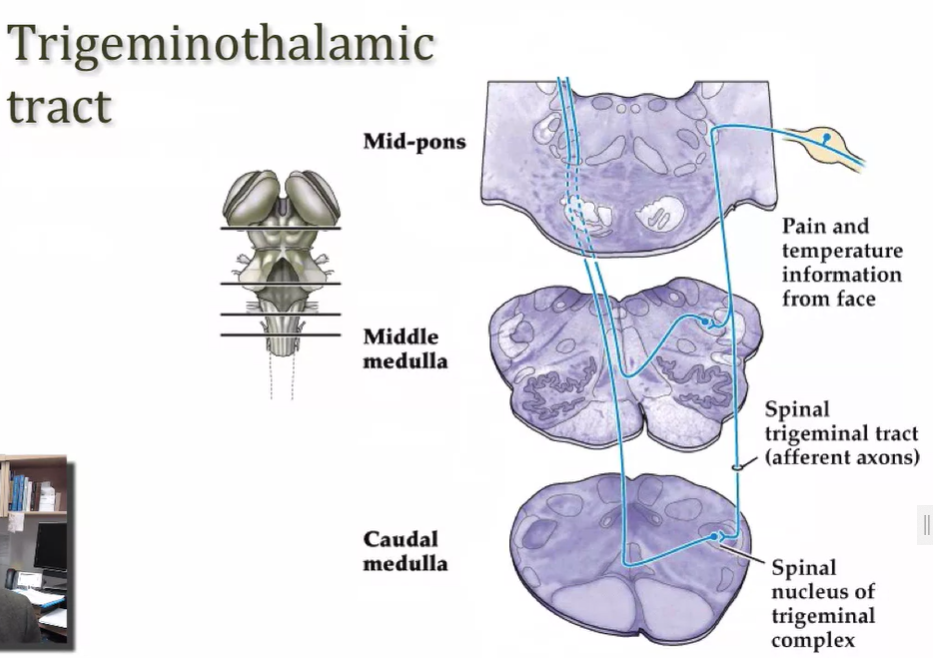
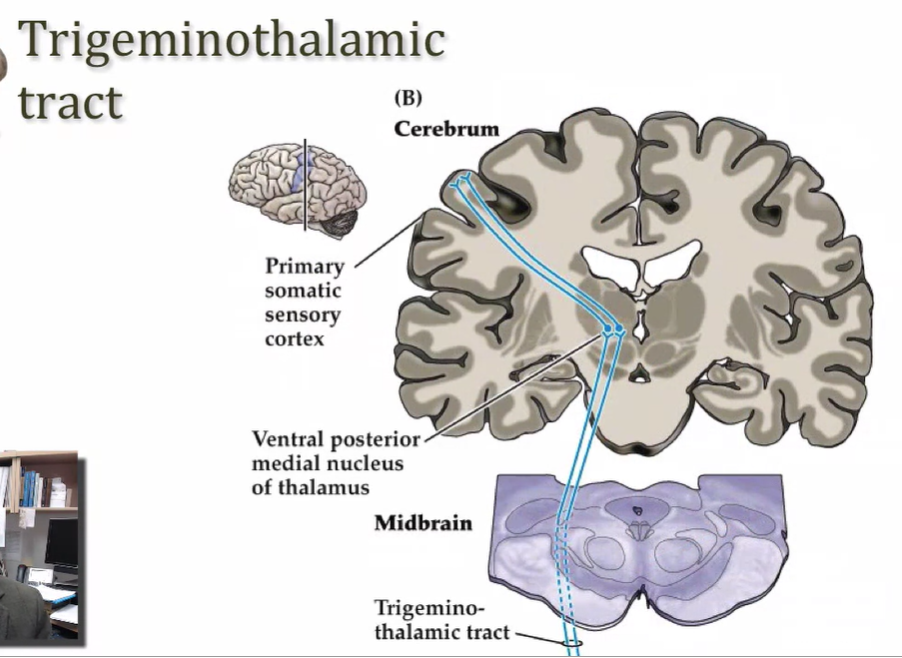
- Dissociated sensory loss(分离性感觉丧失):
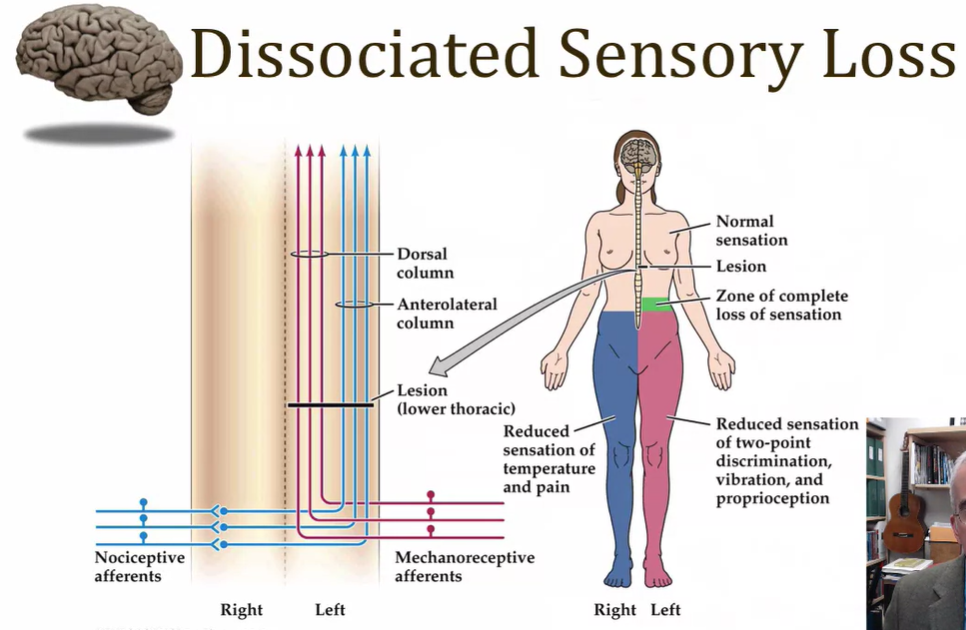
- Visceral pain pathway:
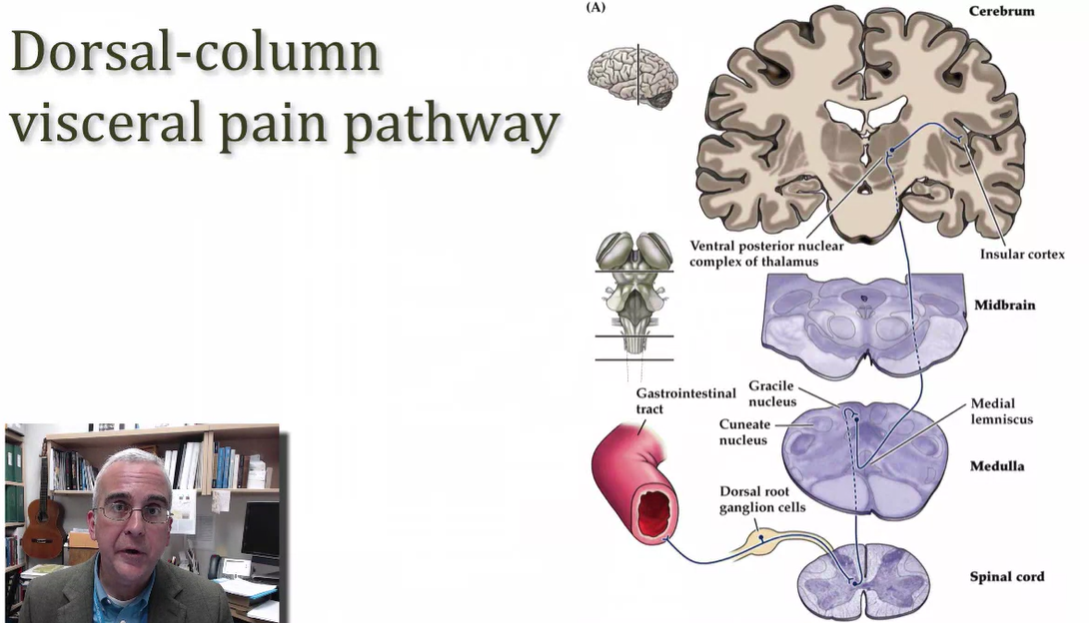
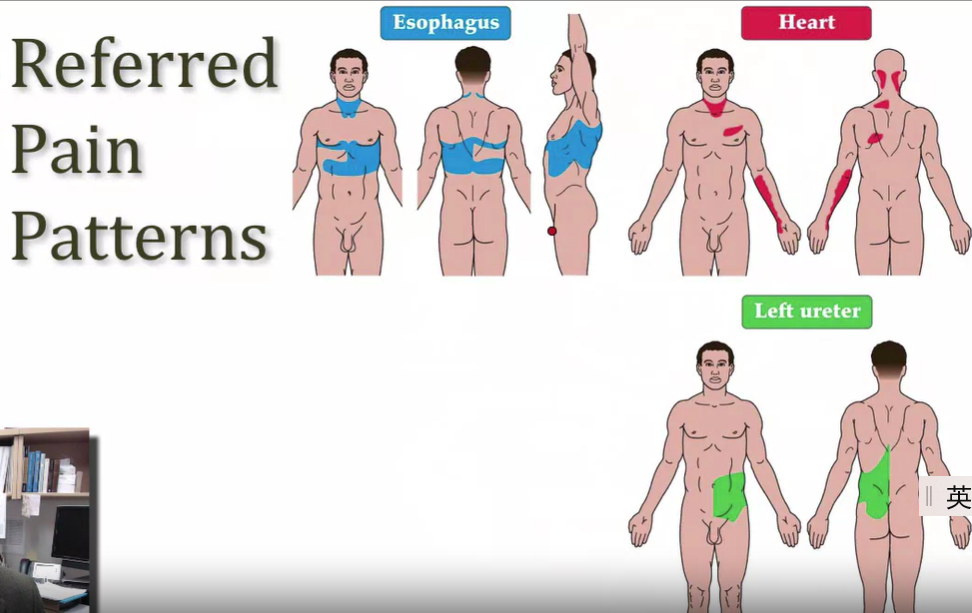
- Anterolateral systems: